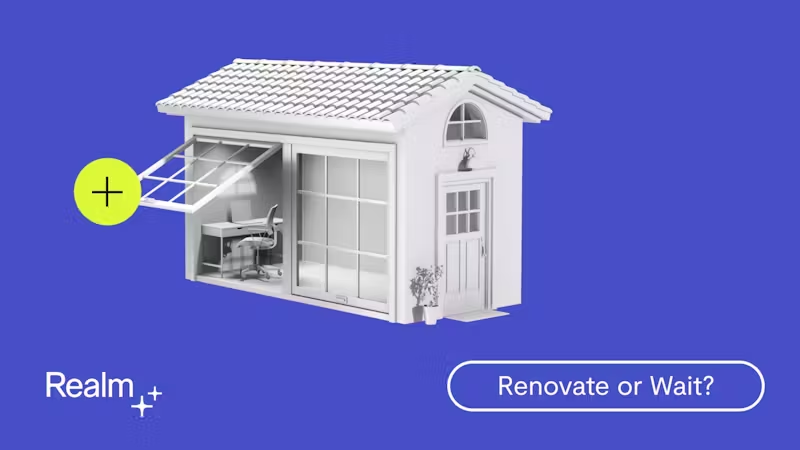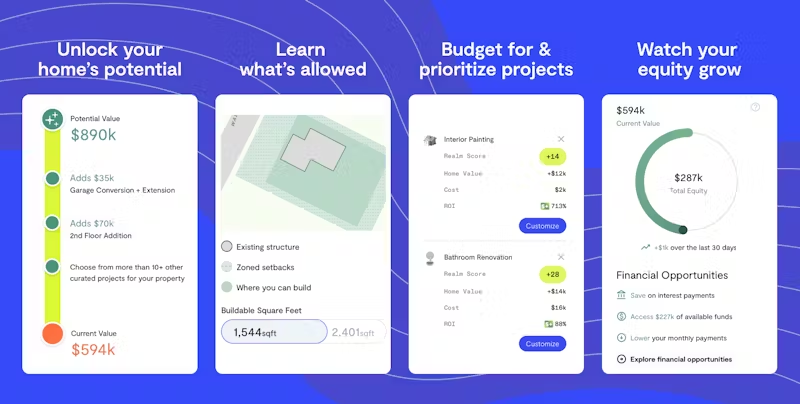7 Steps to Hire a Kitchen Remodeling Contractor
Find a reliable kitchen remodeling contractor with these 7 clear steps. Learn how to compare bids, check credentials, and hire the right pro for your project.
|
October 10, 2025
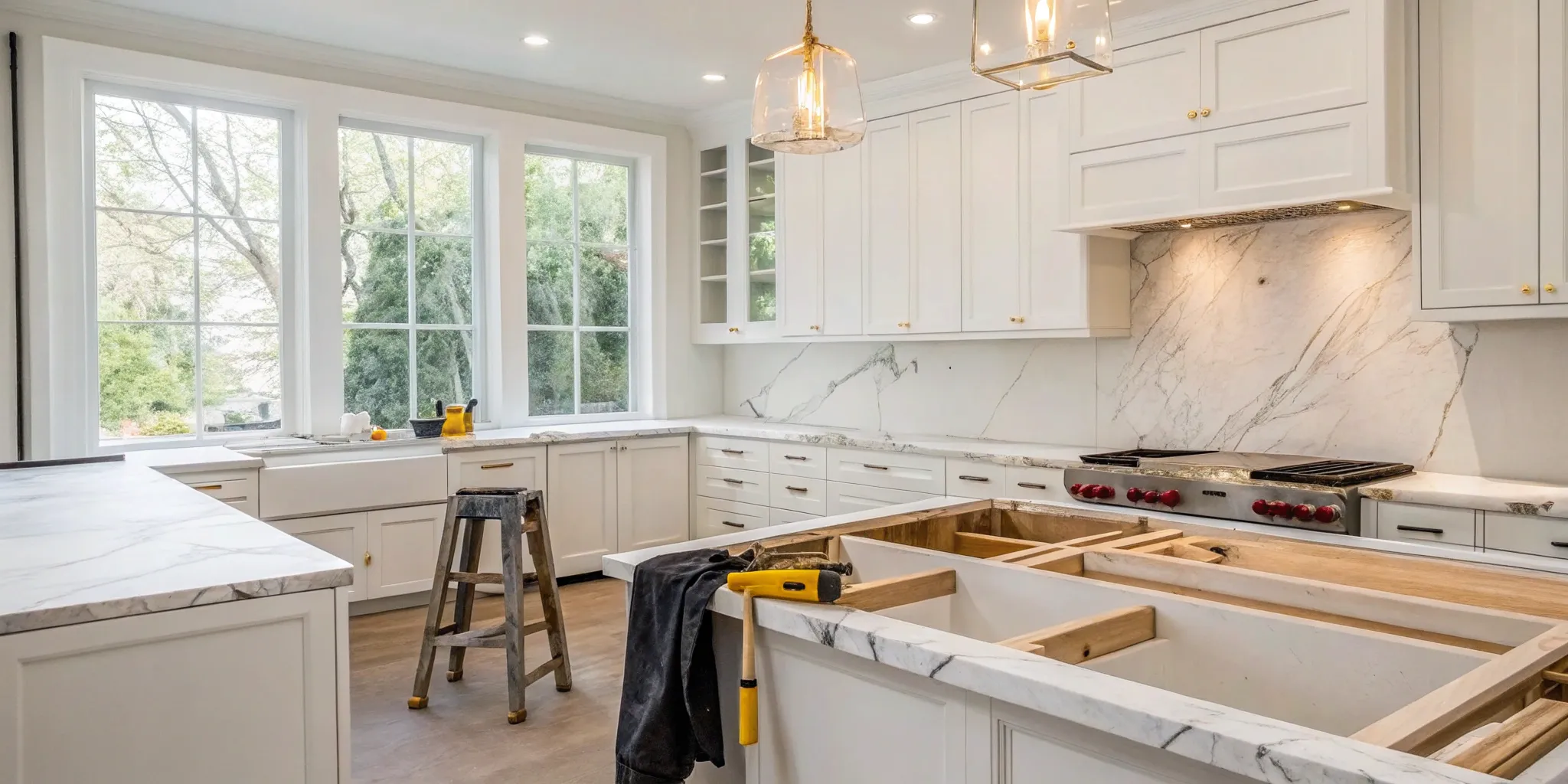
In this article:
Starting a kitchen remodel can feel like standing at the base of a mountain without a map. You know what you want the view to look like from the top, but the path to get there seems confusing and full of obstacles. The journey begins with finding an expert guide: a professional kitchen remodeling contractor. They know the terrain, anticipate challenges, and lead the way from the first design sketch to the final walk-through. This guide provides a clear, step-by-step look at the entire process, showing you what to expect and how your contractor will help you at every phase of the project.
Key Takeaways
- Hire a Project Manager, Not Just a Builder: A contractor's primary role is to manage the entire project—from planning and scheduling subcontractors to handling permits and budgets—which frees you from handling the complex logistics.
- Do Your Homework Before You Hire: The success of your project depends on finding the right partner. Always verify their license and insurance, check references from recent clients, and ask detailed questions about their communication style and process.
- Establish Clear Rules of Engagement: A detailed contract is your project's most important tool. It should clearly define the scope, timeline, and a milestone-based payment schedule, creating a single source of truth that protects both you and your contractor.
What Does a Kitchen Contractor Actually Do?
Think of a kitchen contractor as the captain of your renovation ship. They’re the single point person responsible for turning your kitchen dreams into a functional, beautiful reality. While you might picture them with a hammer in hand (and they often are), their role is much bigger than just construction. They are project managers, problem-solvers, and your expert guide through what can be a very complex process.
From the first design sketch to the final cabinet pull, a contractor oversees every single detail. They create the project timeline, manage the budget, order materials, and ensure all the work is done to a high standard. Essentially, their job is to orchestrate the entire remodel so you don’t have to. A great contractor handles the logistics and stress, allowing you to focus on the exciting parts, like picking out your new countertops. This comprehensive oversight is key to a smooth renovation, which is why getting expert guidance from the start is so important. Let’s break down the four main hats a kitchen contractor wears.
They Help You Plan and Design
Before any walls come down, a solid plan needs to be in place. Your contractor is your partner in this crucial first step. They’ll work with you to refine your vision, ensuring the layout is practical and the design fits your home’s style. They bring a wealth of experience to the table, offering suggestions on everything from the most durable flooring to the smartest cabinet configuration for your space. They help you visualize the final outcome and translate your ideas into a concrete blueprint that the entire construction team can follow, making sure your new kitchen is as functional as it is beautiful.
They Handle Construction and Installation
This is the part of the job that most people think of first. The contractor and their team are responsible for all the physical work involved in the remodel. This starts with demolition and carries through every phase of construction, including framing, drywall, and painting. They are experts in installation, ensuring that your cabinets are level, your countertops are seamless, and your backsplash is perfectly aligned. Their focus on quality craftsmanship is what guarantees a professional, long-lasting result. They handle the heavy lifting and technical tasks that transform a blueprint into your new kitchen.
They Manage the Entire Project
A kitchen remodel has a lot of moving parts, and the contractor is the one who keeps them all moving in the right direction. They act as the central hub for the entire project, coordinating timelines, scheduling deliveries, and making sure everyone is where they need to be, when they need to be there. This project management role is what prevents costly delays and communication breakdowns. Instead of you having to juggle multiple schedules and follow up on orders, your contractor handles all the day-to-day logistics. This "one-stop shop" approach is what makes the renovation process manageable and far less overwhelming for you as the homeowner.
They Bring in Specialized Experts
A great general contractor knows they can’t be an expert in everything. That’s why they maintain a network of trusted, licensed specialists. For a kitchen remodel, this almost always includes bringing in an electrician to handle wiring for new outlets and lighting, as well as a plumber for the sink, dishwasher, and refrigerator lines. By collaborating with these specialized pros, your contractor ensures every aspect of your kitchen is installed safely and up to code. This is non-negotiable for passing inspections and for your peace of mind. Having a contractor with a vetted network of professionals is one of their biggest assets.
How to Find the Right Kitchen Contractor
Finding the right contractor can feel like the most daunting part of a kitchen remodel, but it doesn’t have to be. Think of it as a hiring process where you’re the boss. You want someone with the right skills, a great track record, and a personality you can work with for several weeks or months. The key is to be systematic and trust your gut.
A great contractor is more than just a builder; they’re your partner in bringing your vision to life. They’ll manage the timeline, coordinate subcontractors, and solve the inevitable problems that pop up along the way. Taking the time to find a true professional will save you headaches and ensure your project is a success. At Realm, we simplify this by connecting you with our network of vetted professionals, but if you're running the search yourself, here’s how to find the perfect match for your project.
Where to Start Your Search
The best place to begin your search is with people you trust. Ask friends, family, or neighbors who have recently completed a remodel for their recommendations. A personal referral gives you firsthand insight into a contractor's work ethic, communication style, and the quality of their finished product. If you’re coming up short on personal recommendations, turn to professional organizations. The National Association of the Remodeling Industry (NARI) and the National Kitchen & Bath Association (NKBA) have directories of certified members who adhere to a strict code of ethics. These resources can help you create a solid list of potential candidates to research further.
Using Online Reviews and Directories
Once you have a few names, it’s time to do some online digging. Websites like Houzz and Angi are great for seeing a contractor’s portfolio and reading client reviews. Don’t just look at the star rating; read the actual testimonials. Look for details about their process, communication, and how they handled challenges. A contractor’s profile should show their years in business, photos of past projects, and customer feedback. Pay attention to how they respond to reviews, both positive and negative. A professional and courteous response to criticism can be a good sign. Look for patterns across multiple reviews to get a well-rounded picture of what it’s like to work with them.
How to Vet Their Credentials
This step is non-negotiable. Before you even think about signing a contract, you need to verify that your potential contractor is properly licensed and insured. Each state has its own requirements, so you’ll need to check with your local licensing board. For homeowners in California, you can verify a license with the Contractors State License Board (CSLB). Ask for proof of general liability insurance and workers' compensation. Liability insurance protects your home from damage, while workers' comp covers injuries that might happen on the job site. A legitimate contractor will have no problem providing you with copies of their license and insurance certificates.
Common Red Flags to Avoid
As you interview candidates, keep an eye out for warning signs. Be wary of anyone who gives you an unusually low bid, as this could signal inexperience or an intention to cut corners. Another major red flag is a contractor who asks for a large cash deposit upfront—payment schedules should be tied to project milestones. Also, be cautious of high-pressure tactics or anyone who is hesitant to provide a written contract or references. A true professional will be transparent, patient with your questions, and happy to walk you through their project process. Trust your instincts; if something feels off, it probably is.
Key Questions to Ask Potential Contractors
Once you’ve narrowed down your list to a few top contenders, it’s time for the interview. Think of this as a two-way conversation. You’re not just finding someone to build your kitchen; you’re starting a partnership that will last for weeks or even months. The goal is to find a professional who not only has the right skills but also communicates well and understands your vision.
Feeling prepared with a list of questions will help you compare contractors fairly and make a confident choice. This isn't about grilling them, but about making sure you’re both on the same page before signing a contract. A good contractor will welcome your questions and provide clear, honest answers. At Realm, we help you through this process by connecting you with vetted professionals who are used to this level of detail, ensuring you have all the information you need to move forward.
Ask About Their Experience and Past Projects
Start by getting a feel for their background and the kind of work they specialize in. You want to see that they have a history of successfully completing projects similar to yours. Ask to see a portfolio of their recent work and for references from a few past clients. A reputable contractor will be proud to share these with you. Follow up by asking specific questions like, "How many kitchen remodels have you completed in the last year?" or "Have you ever worked on a home of this age or style before?" This helps you gauge whether their expertise truly matches your project's needs and ensures they have a proven track record.
Clarify the Project Timeline and Process
Understanding the timeline is about more than just knowing the start and end dates. Ask the contractor to walk you through their typical process from day one to the final inspection. This gives you a realistic picture of what to expect and when. Good questions to ask include, "What is the estimated timeline for a project of this scope?" and "How do you handle unexpected delays, like supply chain issues or discovering a problem behind a wall?" A detailed answer shows they have a solid plan. Your Realm advisor can also help you review their proposed schedule to make sure it aligns with industry standards and your personal timeline.
Understand Costs and Payment Schedules
Talking about money upfront prevents surprises later. Ask for a detailed, itemized bid that breaks down the costs for labor, materials, permits, and other expenses. This transparency helps you see exactly where your money is going and compare offers accurately. Also, be sure to clarify the payment schedule. Find out how much is required for a deposit and what the payment milestones will be throughout the project. A typical schedule might involve payments after demolition, rough-in inspections, and cabinet installation. Never agree to pay for the entire project upfront. A clear payment plan protects both you and the contractor.
Confirm Their Insurance and Warranties
This step is non-negotiable for protecting your home and your investment. Ask for proof of both general liability insurance and workers' compensation. Liability insurance covers any damage to your property, while workers' comp protects you if a crew member gets injured on the job. A professional contractor will have this documentation ready to share. You should also ask about their warranties. Do they offer a warranty on their labor? What are the manufacturer warranties on the materials and products they use? Knowing you’re covered gives you peace of mind long after the project is complete.
Set Communication Expectations Early
A great working relationship is built on clear communication. Discuss how you’ll stay in touch throughout the project. Ask them, "Who will be my main point of contact?" and "What's the best way to reach you with questions—phone, text, or email?" It’s also helpful to agree on a schedule for regular check-ins, whether it’s a quick daily update or a more detailed weekly meeting. Establishing these expectations from the start ensures everyone stays informed, which helps the project run smoothly and reduces stress. This is a key part of the support system Realm provides to ensure your renovation experience is a positive one.
What Will Your Kitchen Remodel Cost?
Figuring out the budget is often the first—and most intimidating—step of any kitchen remodel. The final cost can vary widely, with most projects falling somewhere between $15,000 and $45,000. But that’s a huge range, right? The final number really depends on the size of your kitchen, the quality of materials you choose, and how much work needs to be done.
Think of your budget as a roadmap for your project. Understanding where the money goes helps you make smart decisions and stay in control. Instead of getting a single, mysterious number from a contractor, it’s better to see a breakdown of the major expenses. This way, you can decide where to splurge and where to save. A clear plan, like the ones we help create at Realm, ensures there are no major surprises along the way. Let’s walk through the key factors that will shape your kitchen remodel budget.
A Breakdown of Labor Costs
Labor is one of the biggest line items in any kitchen remodel budget, often accounting for a significant portion of the total cost. This isn't just about paying someone to install cabinets; it covers a wide range of skilled work. This includes demolition, framing, electrical and plumbing work, drywall, painting, flooring installation, and tiling. The total labor cost will depend on the scope of your project and the rates for professionals in your area. While it can be tempting to cut corners here, hiring experienced and licensed tradespeople is an investment in your home’s safety and the quality of the final result.
How Materials Impact Your Budget
Your choice of materials is where you have the most control over your budget. This is also where you can really let your personal style shine. The cost difference between materials can be dramatic. For example, laminate countertops are a budget-friendly option, while high-end quartz or marble will be a much larger investment. The same goes for cabinetry, which can range from affordable stock options to fully custom designs. Your selection of appliances, flooring, lighting, and backsplash tile will also play a major role. It’s all about finding the right balance between the look you want, the durability you need, and the price you’re comfortable with.
Watch Out for Hidden Costs
Every renovation project has the potential for surprises, and it’s wise to plan for them. Hidden costs often pop up after the work has started. For instance, once the old cabinets and walls are removed, your contractor might discover outdated wiring, plumbing issues, or even mold that needs to be fixed before the project can continue. Other unexpected expenses can include permit fees, costs for hauling away debris, or making changes to the plan mid-project. A good rule of thumb is to set aside a contingency fund of 10% to 20% of your total budget to cover these unforeseen issues without derailing your project.
Exploring Your Financing Options
A kitchen remodel is a significant financial undertaking, but you don’t necessarily have to pay for it all with cash. Many homeowners use financing to make their dream kitchen a reality. Common options include a home equity line of credit (HELOC), a home equity loan, or a cash-out refinance, all of which allow you to borrow against the value of your home. Personal loans are another possibility, though they often come with higher interest rates. It’s a good idea to explore your financing options early in the planning process to understand what you can comfortably afford.
What a Typical Payment Schedule Looks Like
You won’t be expected to pay for the entire remodel upfront. Instead, you’ll follow a payment schedule that’s tied to specific project milestones. This process should be clearly detailed in your contract. Typically, you’ll pay an initial deposit when you sign the contract so your contractor can start ordering materials and scheduling labor. Subsequent payments are made as key phases of the project are completed—for example, after demolition is finished, once cabinets are installed, and when the countertops are in. The final payment is usually due only after the project is complete and you’ve done a final walk-through to confirm you’re happy with the work.
Your Kitchen Remodel: A Step-by-Step Guide
Once you’ve chosen your contractor and signed the contract, the real work begins. While every project is unique, most kitchen remodels follow a predictable path from initial ideas to the final, beautiful result. Knowing what to expect at each stage can make the entire process feel much more manageable. A great contractor will guide you through every step, but it’s always helpful to understand the road ahead.
This is where your vision starts to take shape. Your contractor acts as your partner, translating your ideas, needs, and budget into a workable plan. This phase involves a lot of communication and decision-making, but it’s also one of the most creative parts of the journey. From layout changes to material selections, this is your chance to design a kitchen that truly works for you and your family. Let’s walk through the five key phases of a typical kitchen remodel.
Step 1: The Initial Consultation
The first meeting with your contractor is all about sharing your vision and setting expectations. Come prepared with your ideas, inspiration photos, and a clear understanding of your budget. Your contractor will ask questions to understand your goals, assess the existing space, and discuss what’s feasible. This is a two-way conversation where you can get a feel for their communication style and expertise. Many contractors offer a free consultation to get this process started. At Realm, we simplify this by connecting you with a dedicated advisor who helps you define your project scope and budget before you even talk to contractors, ensuring everyone is on the same page from day one.
Step 2: Designing and Planning
After the initial meeting, you’ll move into the design phase. This is where you finalize the layout, cabinets, countertops, appliances, and all the other details. Your contractor may have an in-house designer or recommend one to help create detailed plans and 3D renderings. This is the blueprint for your entire project. You’ll work together to select materials and finishes that fit your style and budget. A solid plan is the key to a smooth project, as it helps prevent costly changes and delays down the line. This is the stage where you make all the important decisions before any demolition begins.
Step 3: Securing Permits
Nearly all kitchen remodels that involve moving walls, plumbing, or electrical wiring require a permit from your local building department. This isn’t just red tape; permits ensure the work is done safely and up to code, which is crucial for your family’s safety and your home’s resale value. A professional contractor will know exactly which permits are needed and will handle the entire application and approval process for you. They understand the local regulations and can make sure your project is fully compliant, saving you from potential headaches and fines.
Step 4: The Construction Phase
This is when your old kitchen disappears and the new one starts to emerge. The process typically begins with demolition, followed by any structural changes, plumbing, and electrical work. After that, drywall goes up, followed by flooring, cabinet installation, and countertop templating. The final steps include installing the countertops, backsplash, appliances, lighting, and hardware. Your contractor will manage the schedule, coordinate all the tradespeople, and oversee the quality of the work. They should also provide you with regular updates and a clear timeline, so you always know what to expect during this busy phase.
Step 5: The Final Walk-Through and Inspection
Once the construction is complete, it’s time for the final walk-through. You and your contractor will go through the entire kitchen with a fine-tooth comb to create a “punch list”—a list of any small details that need to be fixed or adjusted. This could be anything from a paint touch-up to a sticky cabinet door. The contractor will address every item on the list to ensure you’re completely satisfied. If your project required a permit, a city inspector will also perform a final inspection to officially sign off on the work before you make your final payment.
How to Have a Great Relationship With Your Contractor
Think of your relationship with your contractor as a partnership. You’re going to be working closely together for weeks or even months, so building a positive connection from the start will make the entire renovation process smoother and far more enjoyable. Like any good partnership, it’s all about clear communication, mutual respect, and shared goals. When you and your contractor are on the same team, you’re both working toward the same thing: a beautiful, well-built kitchen you’ll love for years. Having a dedicated advisor can also help facilitate these conversations, ensuring nothing gets lost in translation.
Start by Setting Clear Expectations
The foundation of a great project is laid long before the first wall comes down. Before any work begins, it’s crucial that you and your contractor are completely aligned on the project's goals, budget, and timeline. Be direct and detailed about your vision. Share inspiration photos, specify the materials you like, and discuss how you need the space to function. A good contractor will appreciate this clarity, as it helps them bring your vision to life accurately. This is also the time to agree on a payment schedule and a process for handling any changes. Getting everything on the table upfront prevents surprises and sets a positive tone for the entire project.
How to Make Confident Design Decisions
While you have the vision, your contractor has the hands-on experience. Don’t hesitate to lean on their expertise. They’ve likely installed dozens of countertops and seen which cabinet layouts work best in a space like yours. Ask for their professional opinion on materials, finishes, and potential layouts. This isn’t about giving up control; it’s about collaboration. They can offer practical insights that you might not have considered, helping you make choices that are not only stylish but also durable and functional. A great contractor acts as a valuable sounding board, helping you feel more confident in every decision you make.
What to Do When Plans Change
Even with the most meticulous planning, renovations can be unpredictable. You might discover unexpected plumbing behind a wall, or you might simply change your mind about a paint color. When changes happen, the key is to address them immediately. It’s essential to maintain open lines of communication with your contractor to discuss any adjustments. Talk through how the change will affect the budget and timeline, and make sure you get a formal “change order” in writing. This document officially records the new plan and any associated costs, ensuring everyone is aligned and accountable for the new direction. A calm, clear process for managing changes keeps stress levels low for everyone involved.
Keep Track of Important Documents
The old saying "get it in writing" is your best friend during a renovation. This isn't about a lack of trust; it's about ensuring total clarity for both you and your contractor. Create a dedicated folder—either physical or digital—for all project-related paperwork. This includes your initial contract, all change orders, payment receipts, and any important email correspondence. Having a central place for these documents creates a single source of truth that you can both refer back to if questions arise. It’s a simple organizational habit that protects you and your contractor and helps prevent misunderstandings down the road.
Finishing the Project on a High Note
As your project nears completion, it’s time for the final walk-through. This is your opportunity to walk through the space with your contractor and create a "punch list"—a list of any small items that need a final touch-up, like a paint scuff or a piece of trim that needs adjusting. Approach this as a collaborative review, not a critique. Once the punch list is complete and you’re thrilled with your new kitchen, take a moment to express your appreciation for their hard work. A positive wrap-up not only feels good but also strengthens your relationship, which is great if you ever have future projects in mind.
How to Protect Your Investment
A kitchen remodel is one of the biggest investments you'll make in your home, so it's smart to treat it like one. Protecting that investment goes beyond picking the right tile or countertops; it’s about putting safeguards in place before the first hammer swings. Think of it as setting up the rules of the game so that everyone—you and your contractor—knows how to play and win. A successful project isn't just about a beautiful final product; it's about a smooth process free of costly surprises, legal headaches, or work that doesn't last.
Taking a few key steps upfront can save you an enormous amount of stress and money down the line. This means getting everything in writing, understanding the protections you're entitled to, and establishing a clear process for payments and quality checks. When you work with a platform like Realm, your dedicated project advisor helps manage these details, but it’s always empowering to know what to look for yourself. By being an informed and proactive homeowner, you ensure your vision is executed correctly and your investment is secure for years to come.
What to Look for in Your Contract
Your contract is the single most important document for your remodel. It’s the official playbook for the entire project, so read it carefully before signing. A solid contract should clearly outline the full scope of work, leaving no room for interpretation. It needs to specify the exact materials to be used—down to brand names and model numbers—along with a detailed project timeline and a clear payment schedule tied to milestones. This document is your primary tool for preventing misunderstandings and making sure you and your contractor are always on the same page.
Why Insurance is Non-Negotiable
Before any work begins, you need to verify that your contractor has current and adequate insurance. This isn't just a formality; it's a critical layer of protection for you. Ask for proof of two key types of coverage: general liability, which covers property damage, and workers' compensation, which covers injuries to the crew on your property. Without this, you could be held financially responsible for accidents or damages that occur during the remodel. A professional contractor will have this coverage and should be happy to provide you with a certificate of insurance.
Understanding Your Warranty
A warranty is your contractor's promise that their work will stand the test of time. Make sure you understand the terms before the project starts. A good warranty covers both the materials used and the workmanship—the quality of the installation itself. Ask your contractor to explain the warranty in detail and get it in writing. You'll want to know how long the coverage lasts, what it includes (and excludes), and what the process is for filing a claim if something goes wrong. This gives you peace of mind that your investment is protected against future defects.
How to Pay Your Contractor Safely
How you pay your contractor is just as important as how much you pay them. To protect your investment, you should never pay for the entire project upfront. Instead, work with your contractor to establish a payment schedule that aligns with specific project milestones. For example, you might make payments after demolition is complete, once cabinets are installed, and so on. This approach keeps you in control and ensures that payments are only made after you’ve seen and approved the progress. The final payment should always be held until after the final walk-through is complete and you are fully satisfied.
Ensuring Quality Control from Start to Finish
Staying involved is the best way to ensure your project meets your standards. This doesn't mean you need to micromanage, but you should plan for regular check-ins and site visits. Communicate openly with your contractor and don't be afraid to ask questions as the project moves forward. Conducting inspections at key stages helps you catch any potential issues early, when they're much easier to fix. This ongoing dialogue is essential for a great outcome and is a core part of the supported experience we help facilitate for homeowners.
Related Articles
- Kitchen Remodel Design Ideas
- Why Realm: Quality Craftsmanship
- How It Works: Realm’s Project Process
- Vendor Signup: Vetted Network of Professionals
- Working With Home Contractors
Frequently Asked Questions
How long does a typical kitchen remodel take? While every project is different, you can generally expect the construction phase of a kitchen remodel to last anywhere from 6 to 12 weeks. This timeline depends heavily on the scope of your project, the time it takes to get permits approved, and the availability of your chosen materials. Remember that this doesn't include the planning and design phase, which can take a month or two on its own. Investing time in detailed planning upfront is the best way to keep the construction schedule on track.
Can I live in my house during the renovation? Yes, most homeowners stay in their homes during a kitchen remodel, but it definitely requires some preparation. You’ll want to set up a temporary kitchen in another room with essentials like a microwave, a coffee maker, and a mini-fridge. Be prepared for a period of dust and noise, but a good contractor will take steps to contain the mess to the work area. It’s a temporary inconvenience for a long-term reward.
Do I really need a general contractor for my kitchen remodel? If your remodel involves more than just cosmetic updates—meaning you’re moving walls or changing plumbing and electrical layouts—then a general contractor is essential. They act as the project manager, coordinating all the different specialists, from plumbers to electricians to tilers. Trying to manage this yourself can quickly become a stressful, full-time job. A contractor ensures the project runs smoothly, stays on schedule, and meets all safety codes.
What are the best ways to save money without cutting corners? You can make a big impact on your budget by making smart choices with your layout and materials. Keeping your kitchen’s existing footprint is one of the biggest ways to save, as moving plumbing and electrical lines adds significant cost. You can also opt for high-quality stock or semi-custom cabinets instead of fully custom ones. When it comes to materials, look for options that provide great value and durability without the high-end price tag. The one area you never want to skimp on is quality labor.
What happens if I'm not happy with the work at the end? This is exactly what the final walk-through and punch list are for. Before you make your final payment, you and your contractor will inspect every detail of the finished kitchen together. You’ll create a list of any items that need correction, whether it’s a paint touch-up or an adjusting a cabinet door. A professional contractor is committed to your satisfaction and will address everything on that list. Your contract, which states that final payment is due upon completion, is your assurance that the job will be finished to your standards.







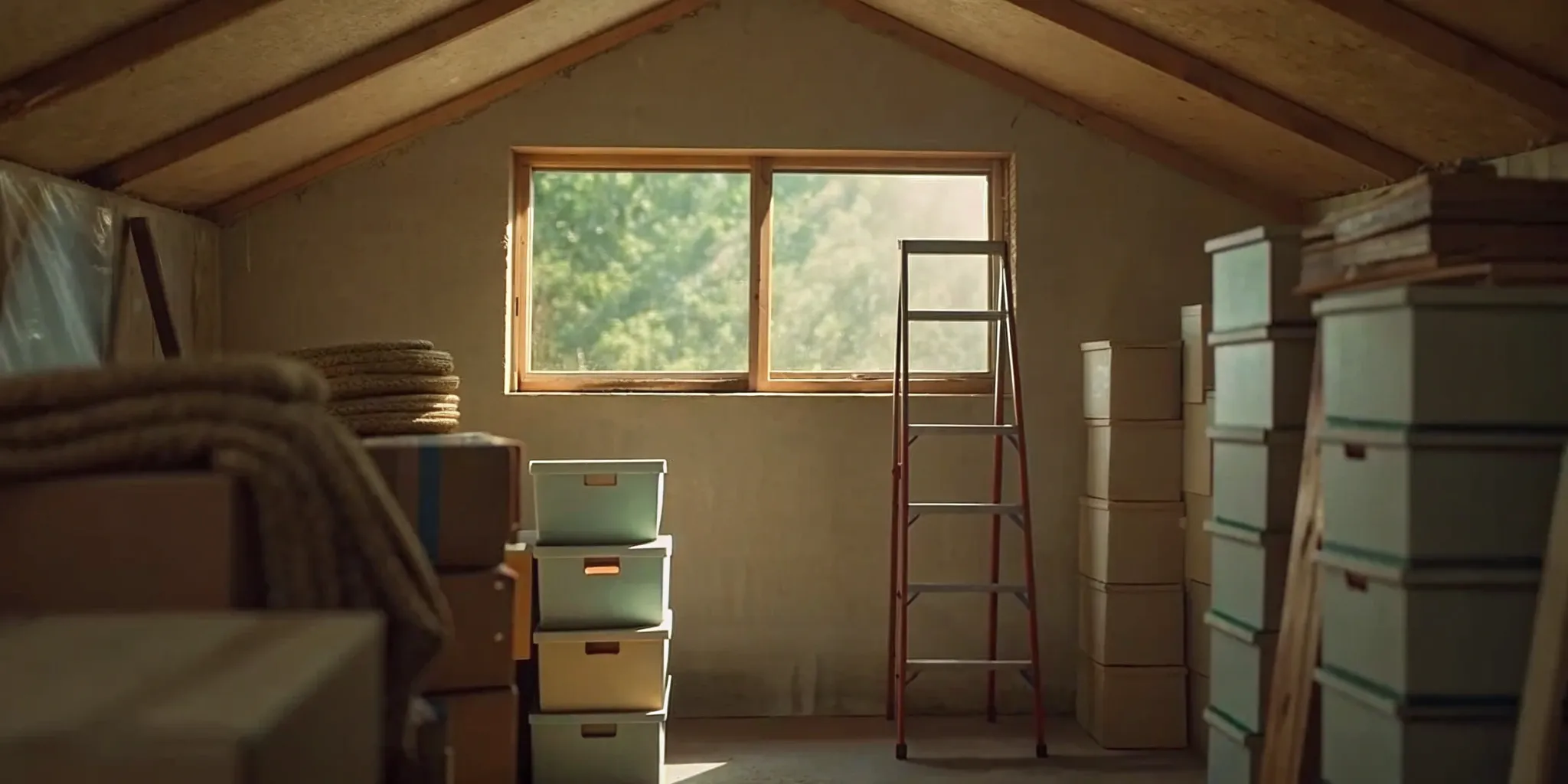





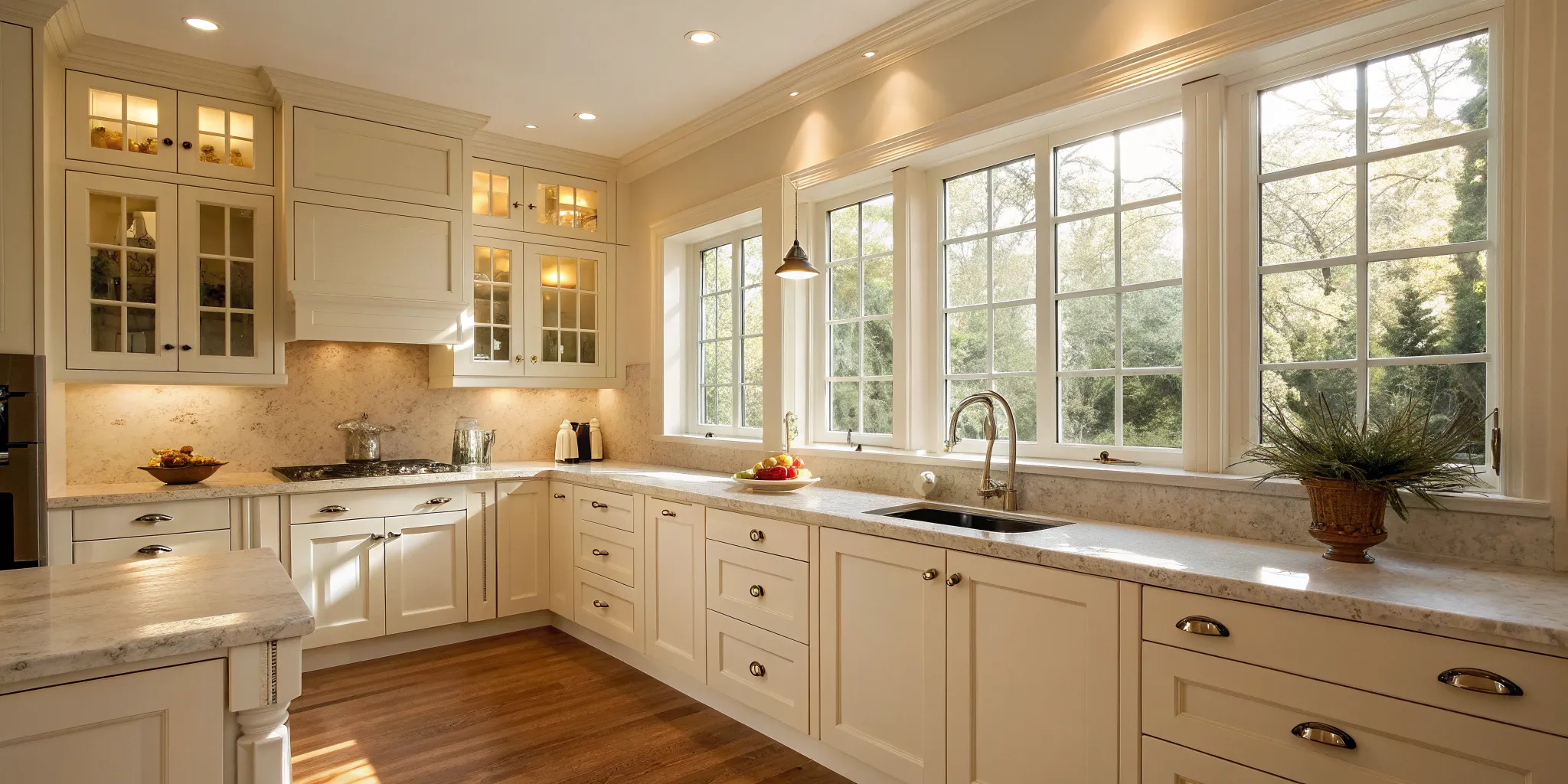
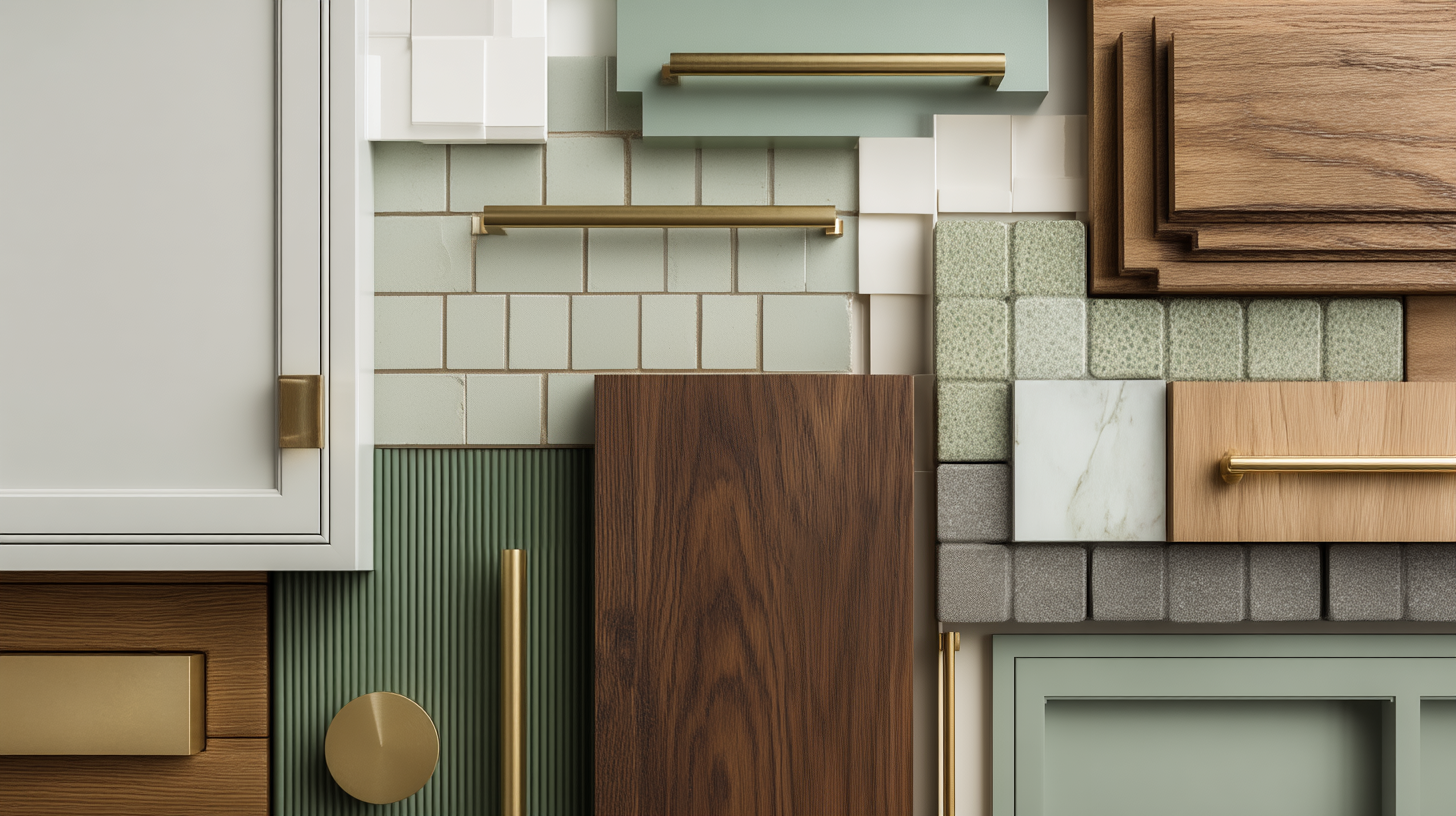

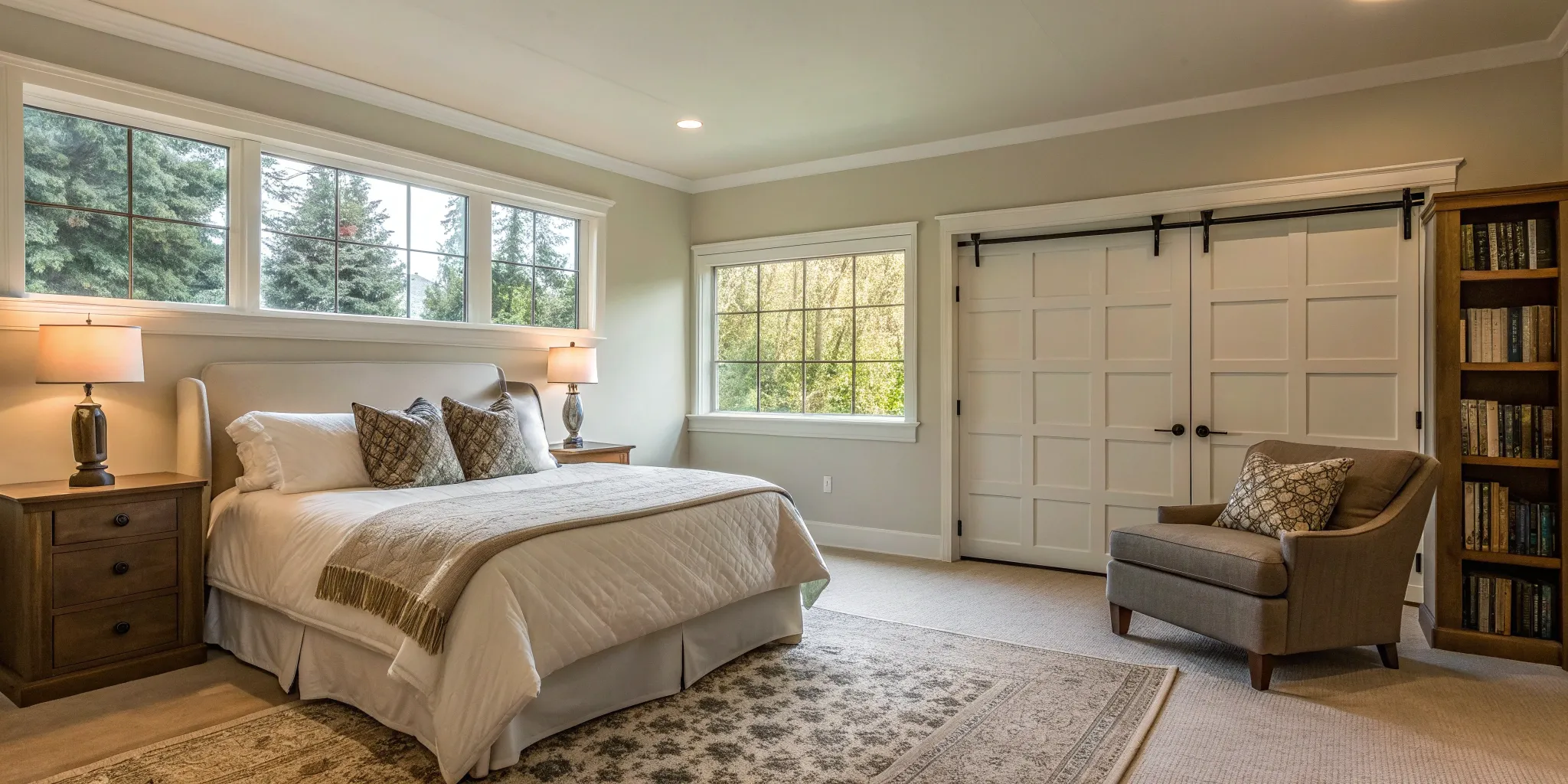
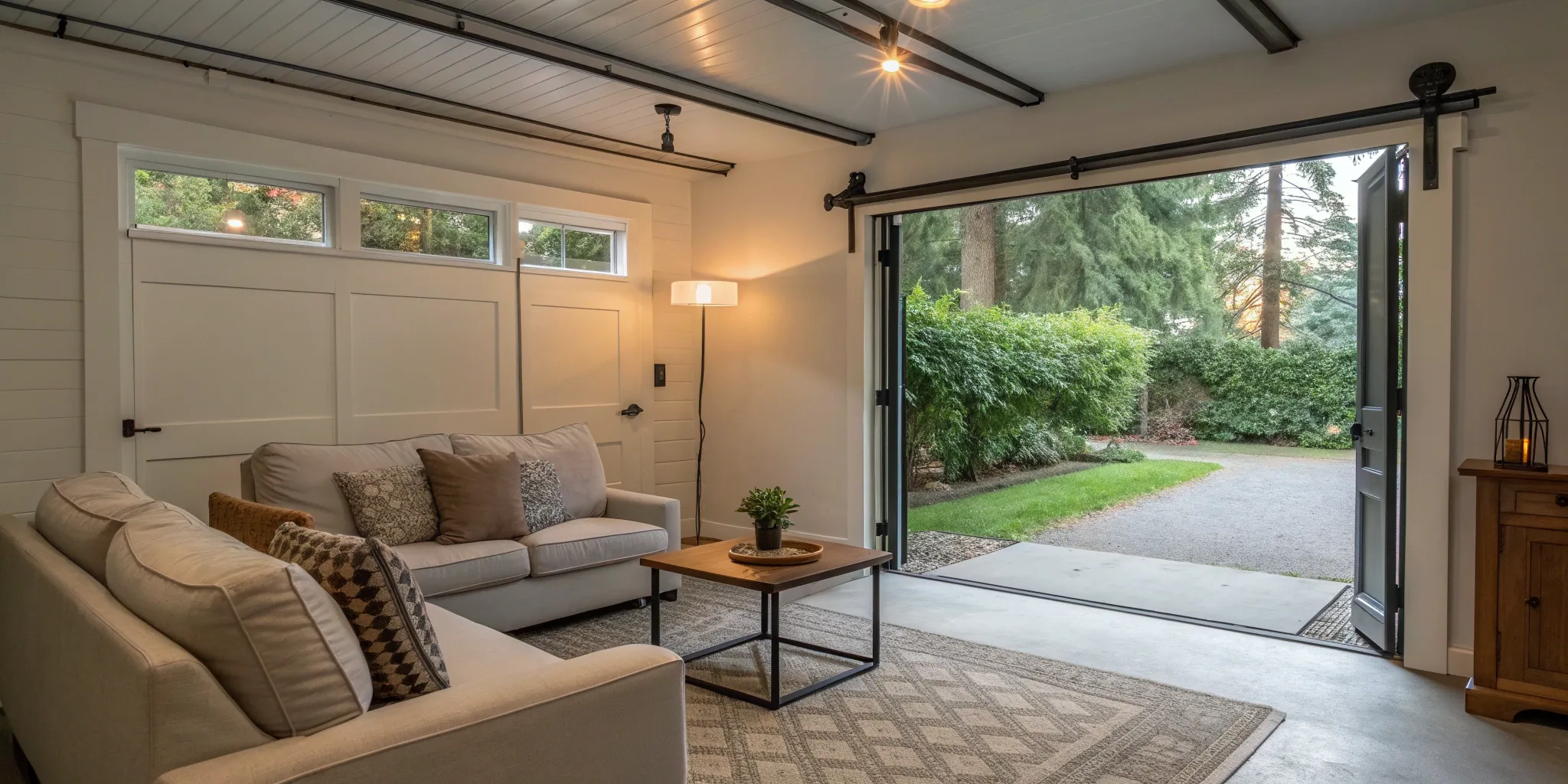
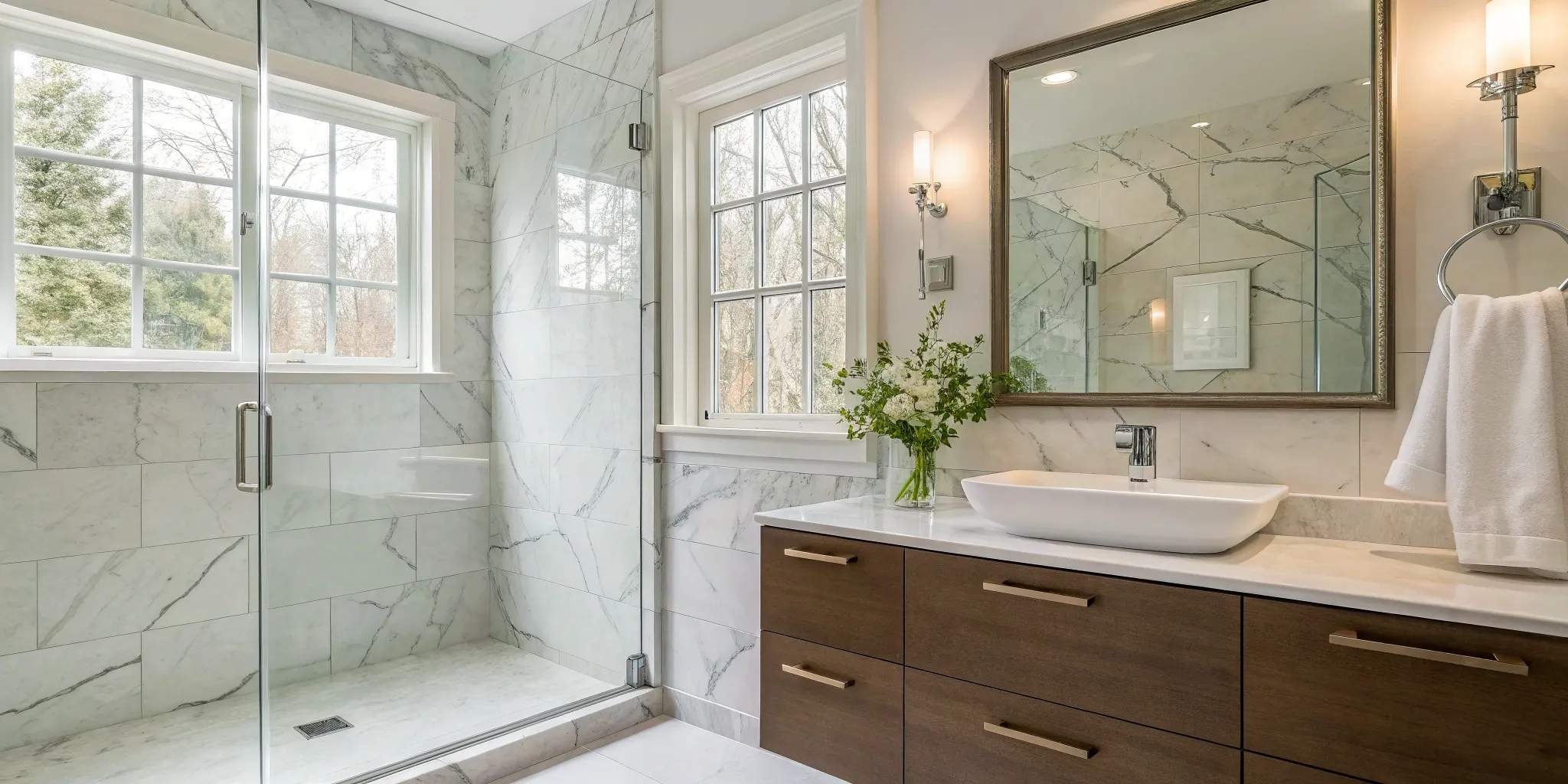



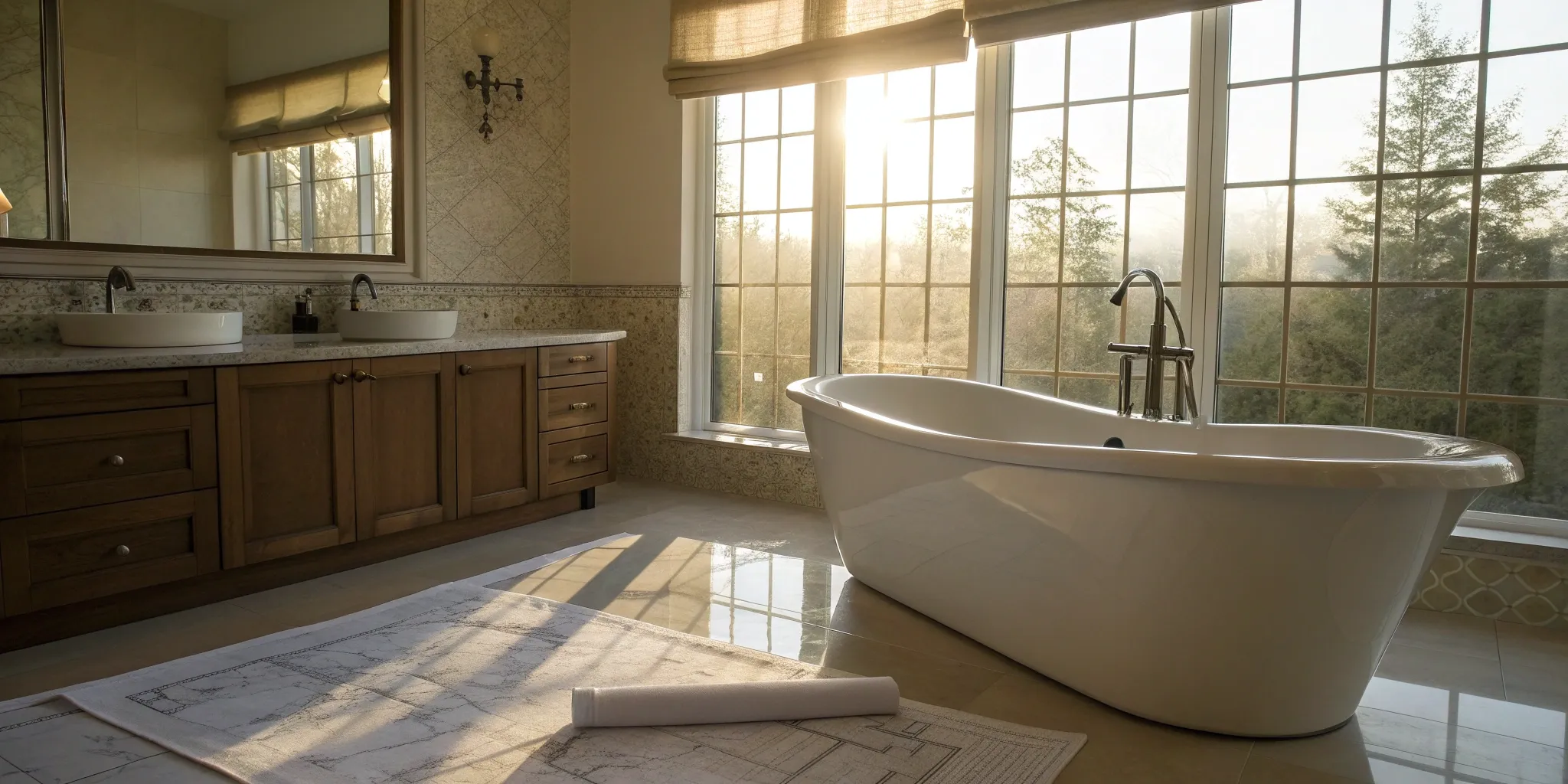

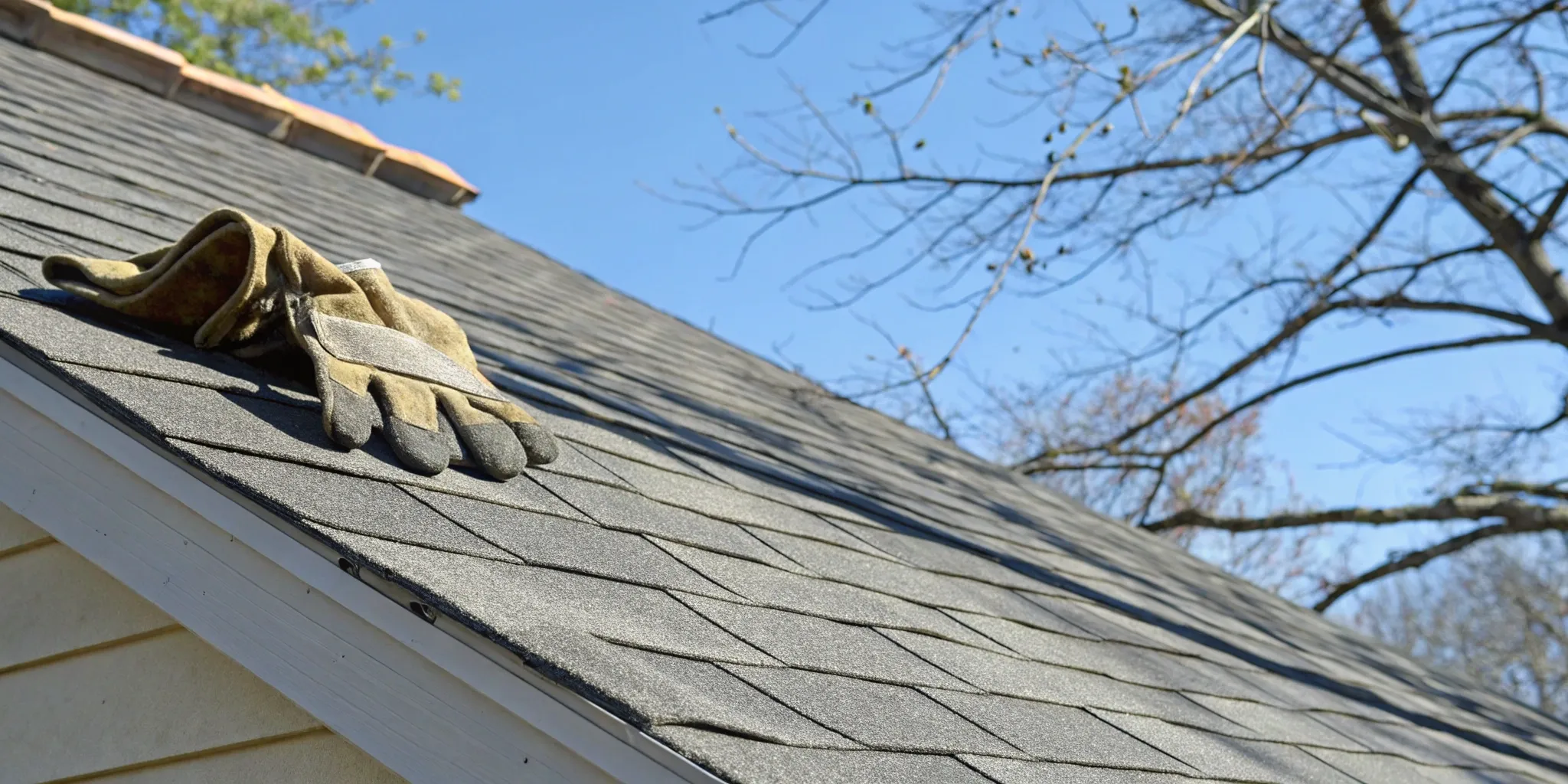


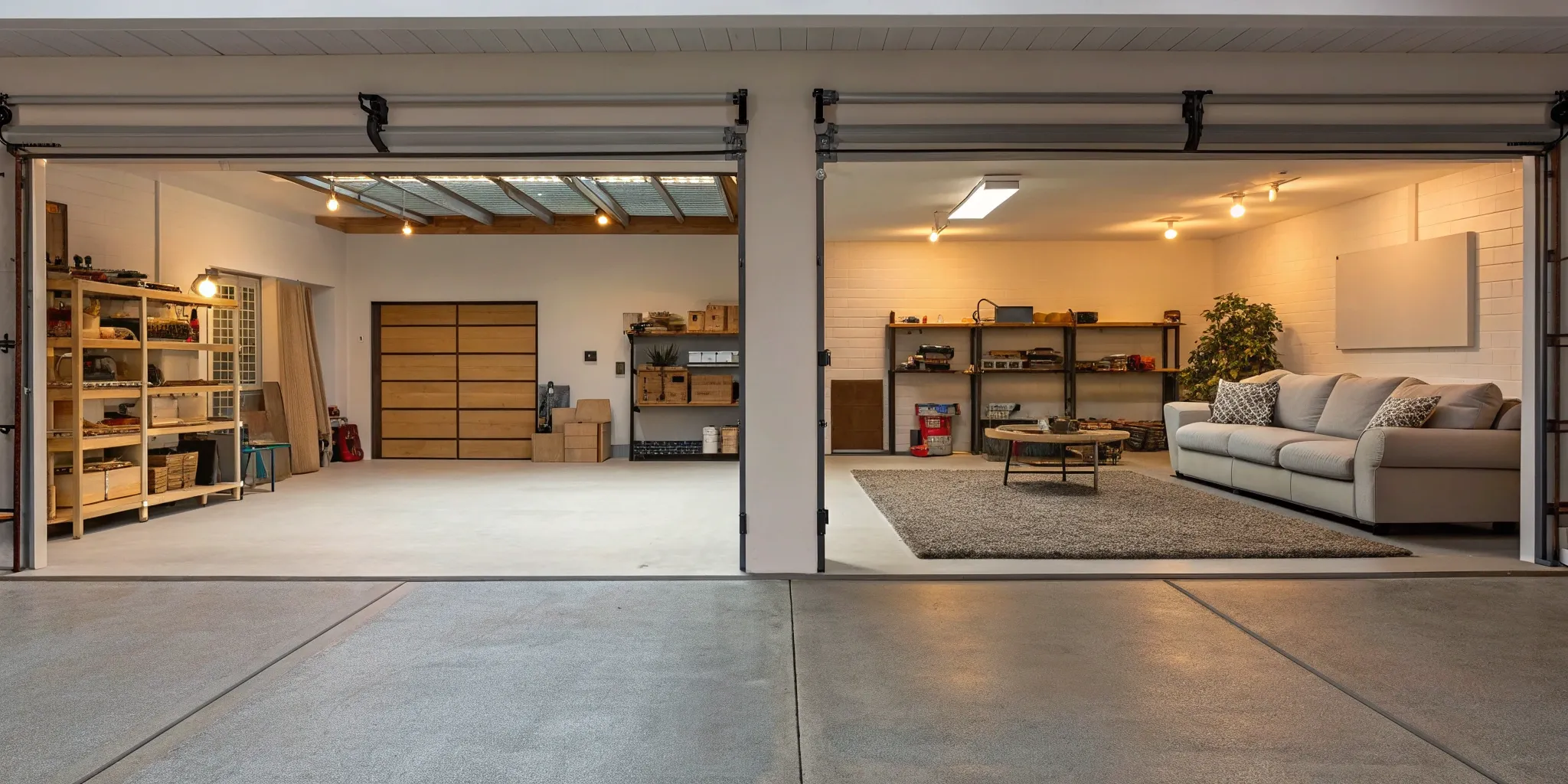
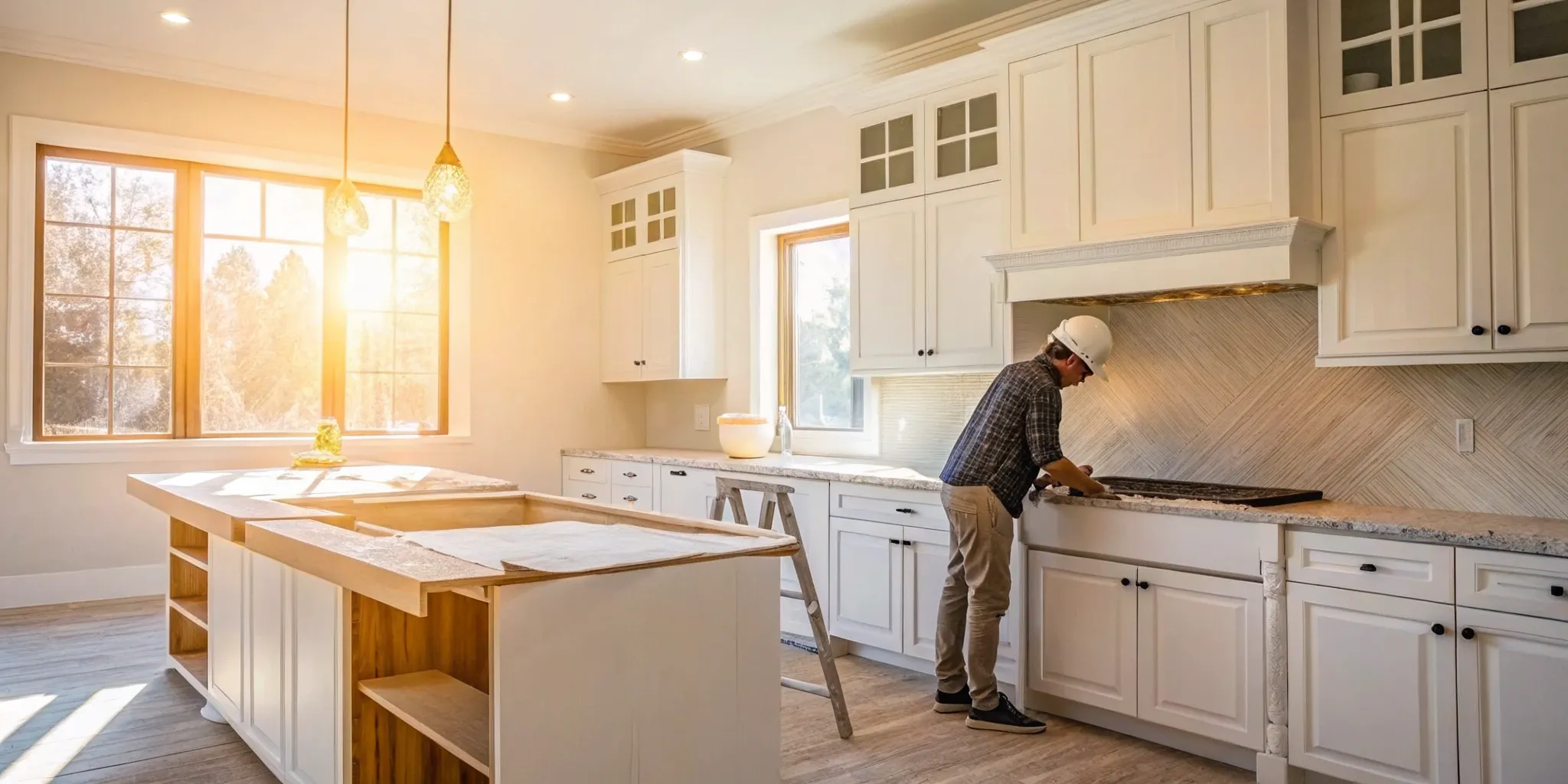
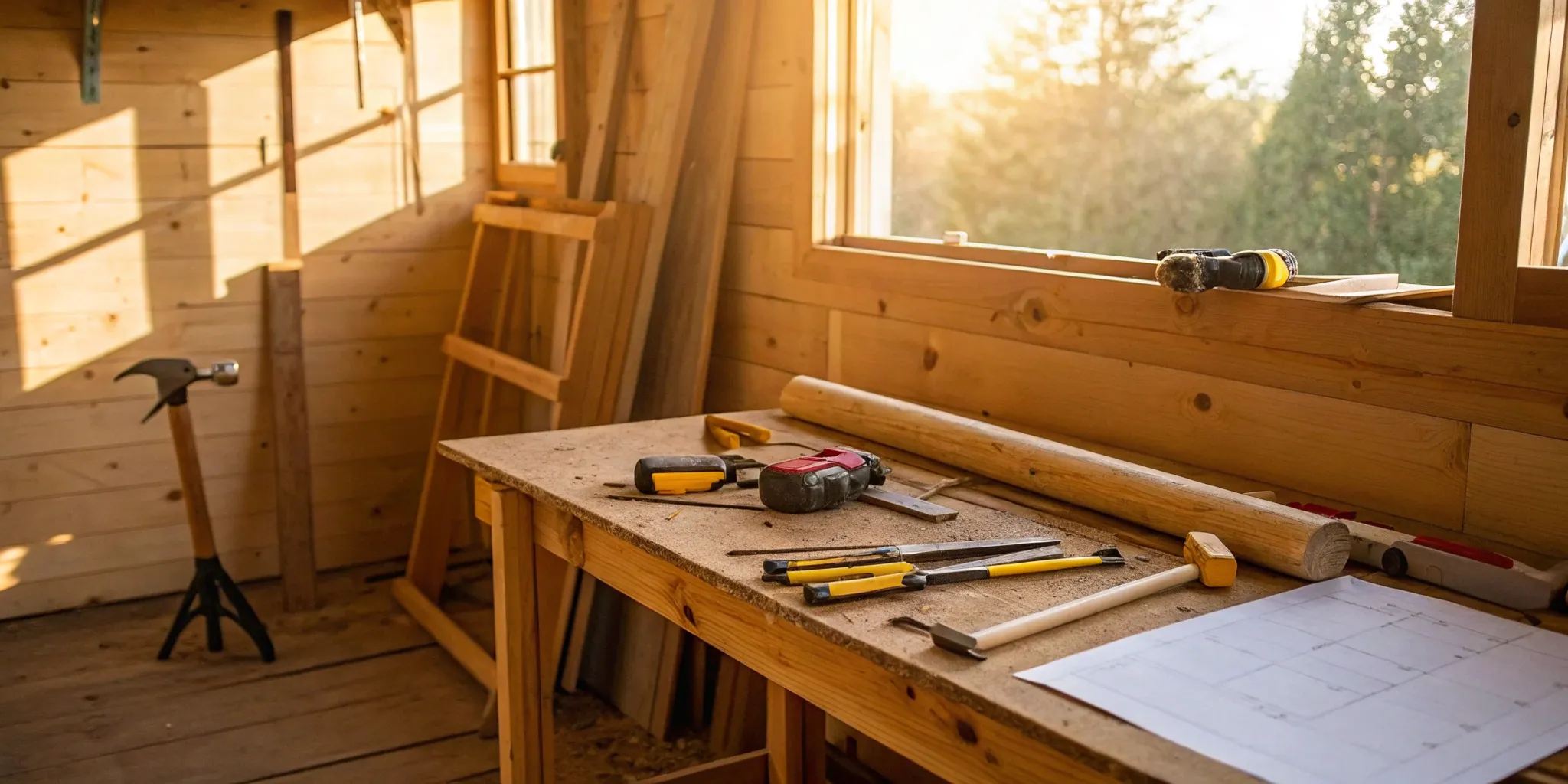
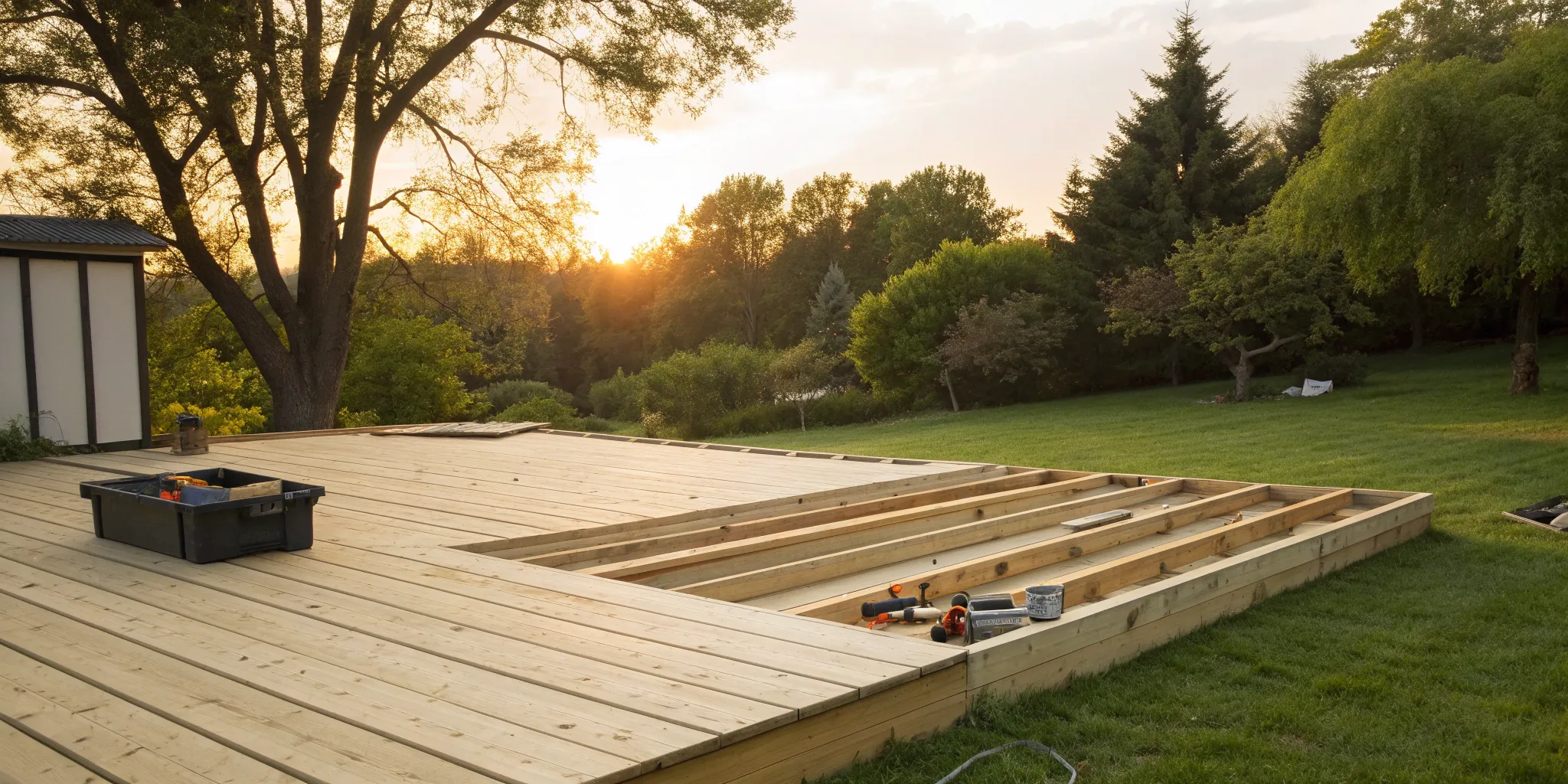
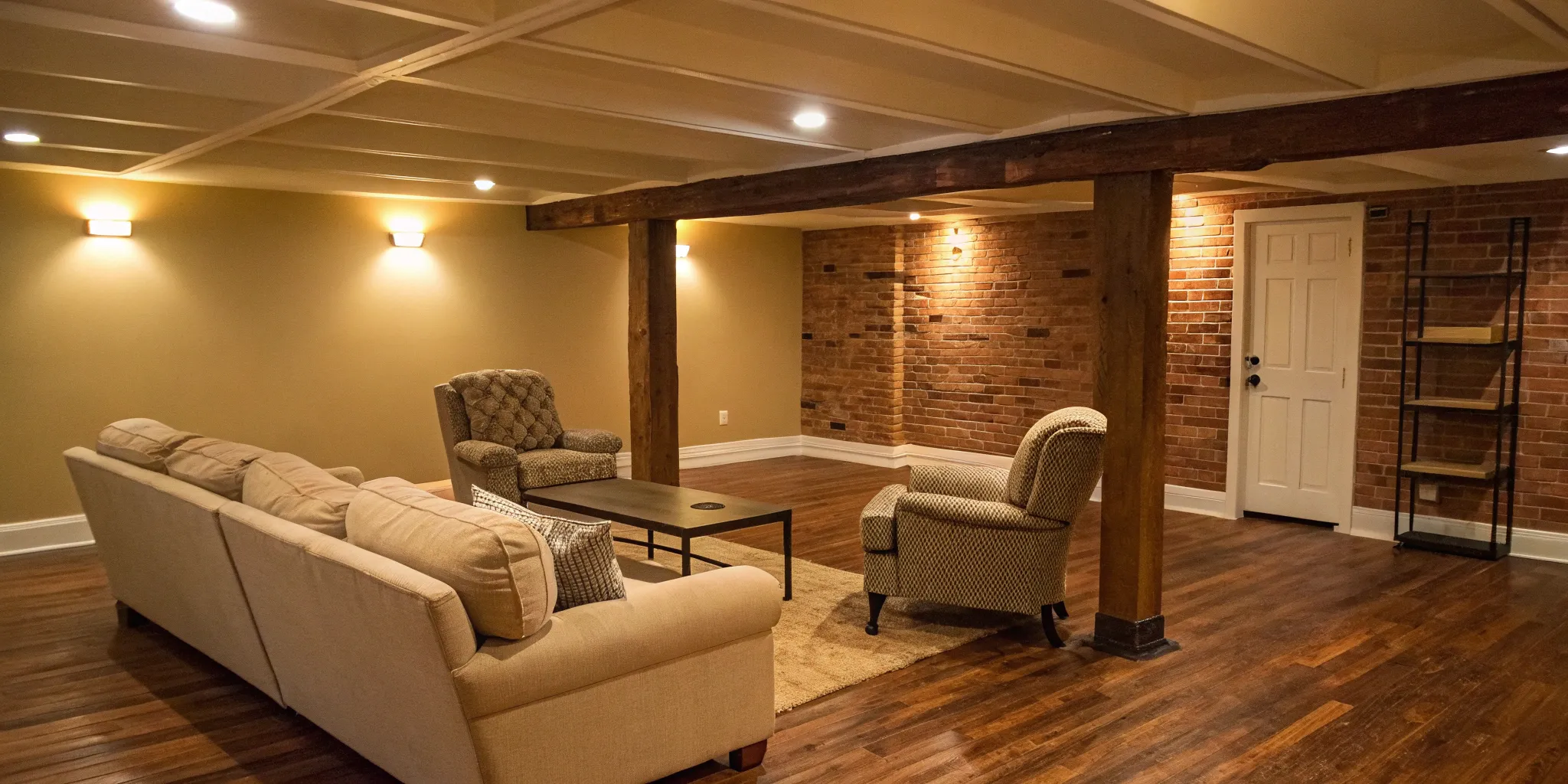
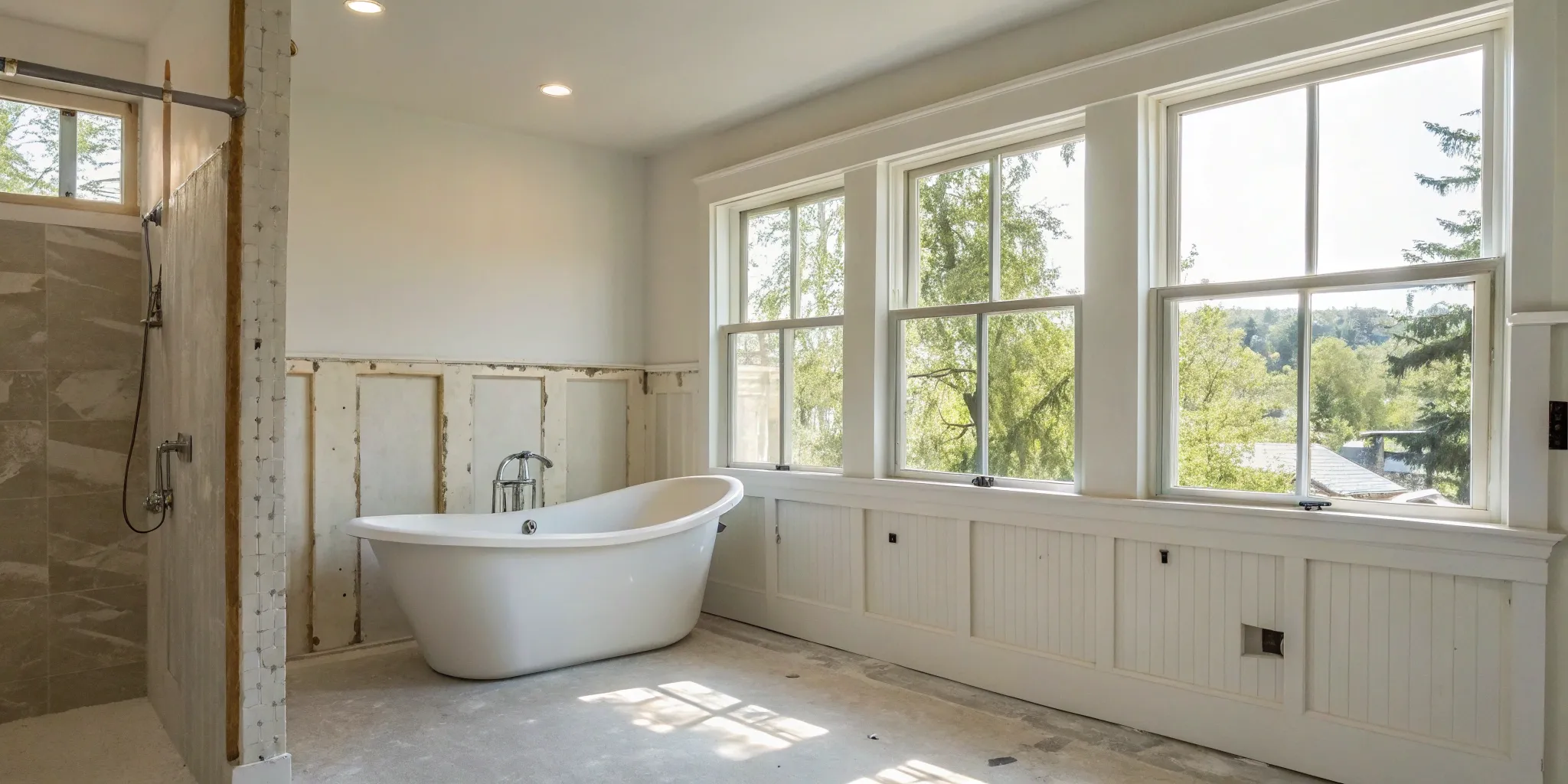
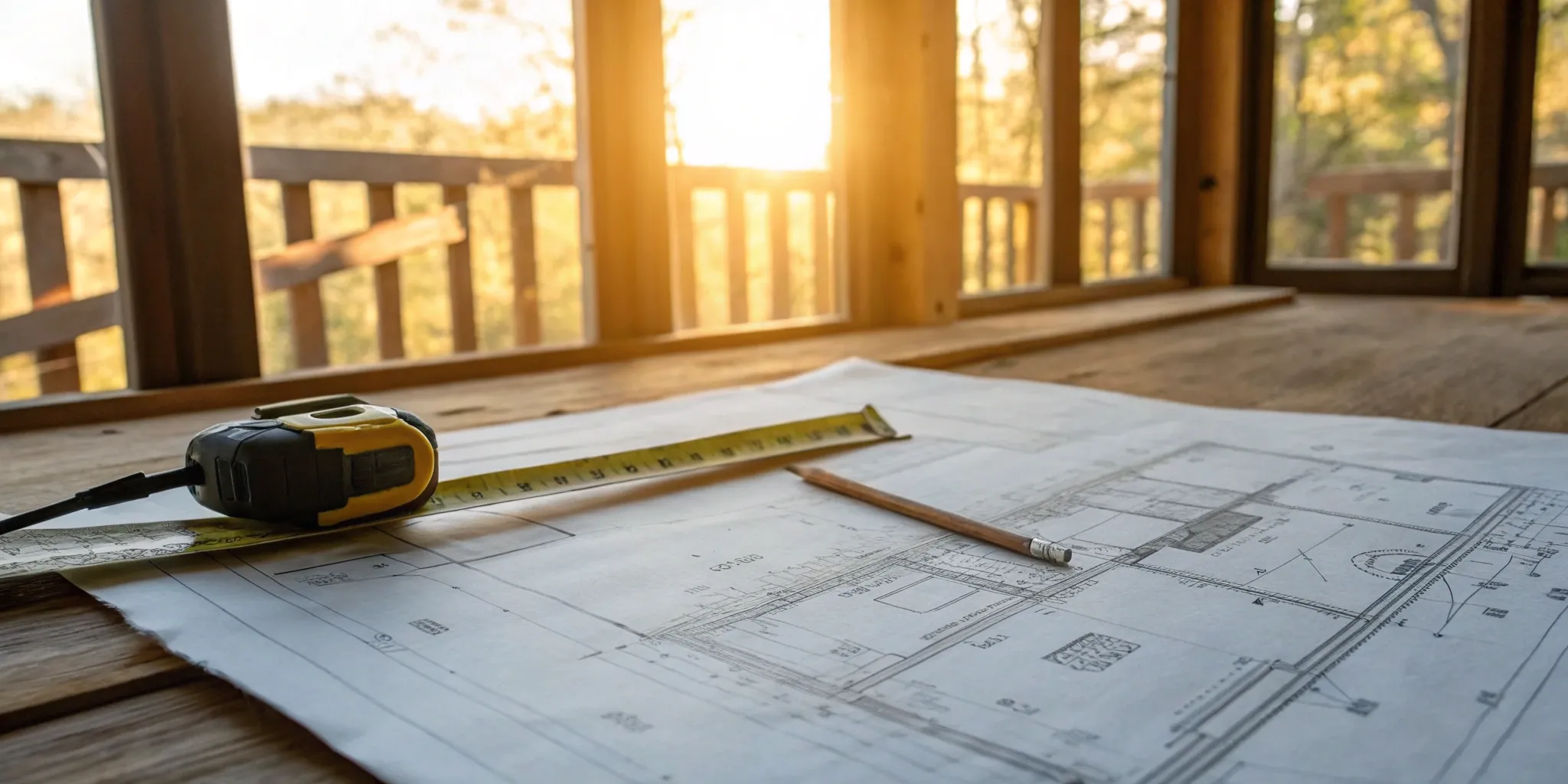
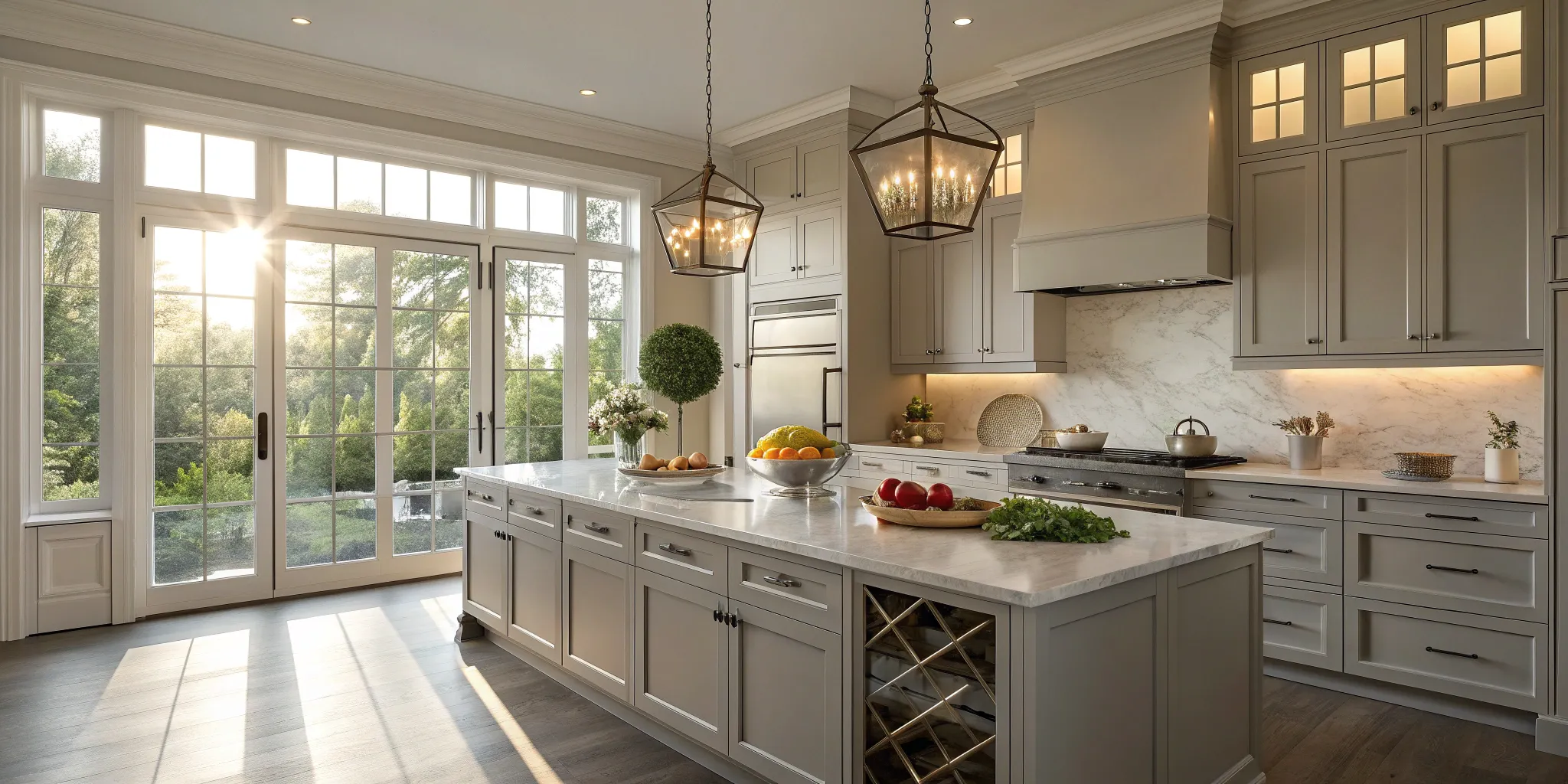


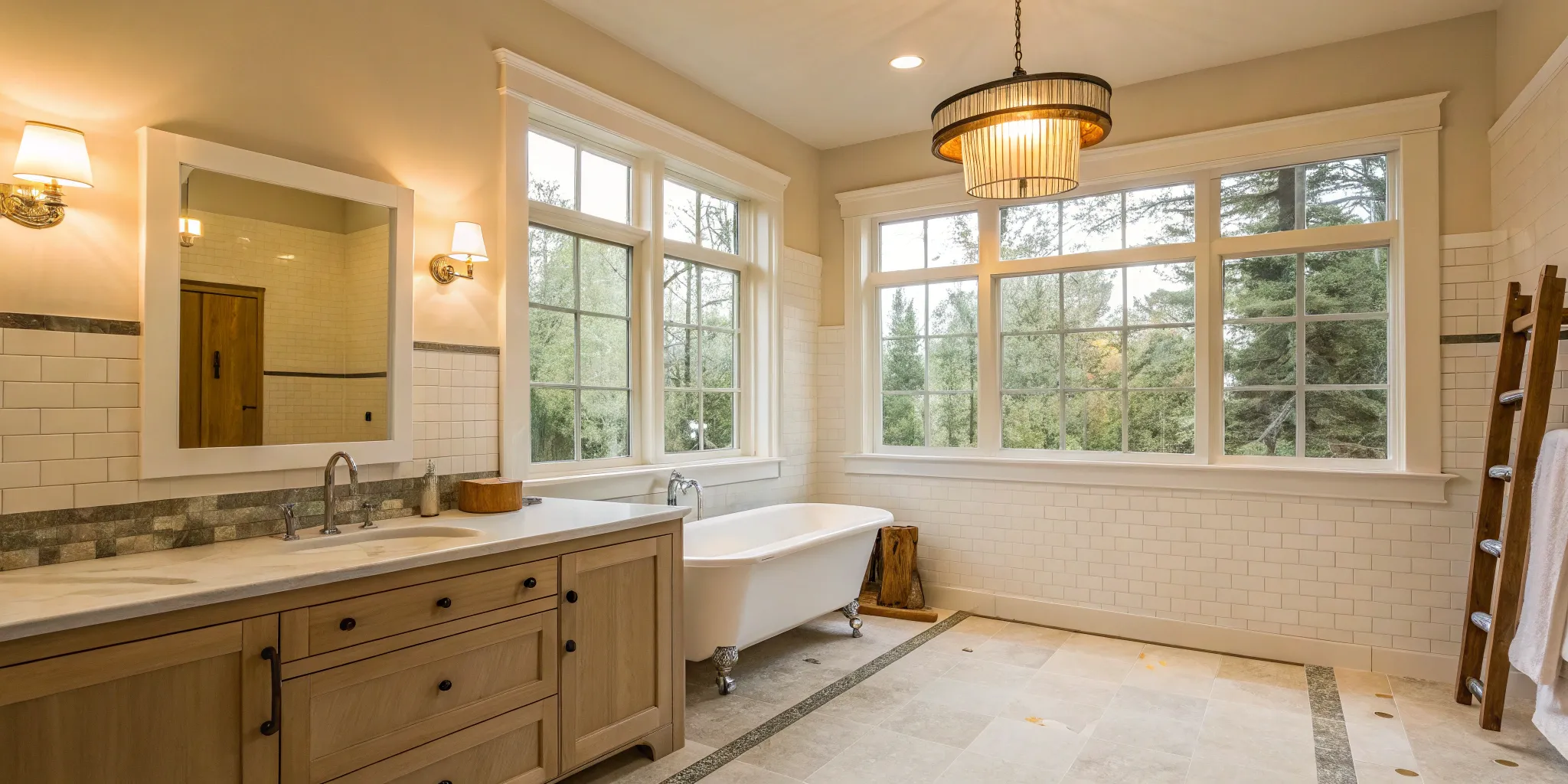
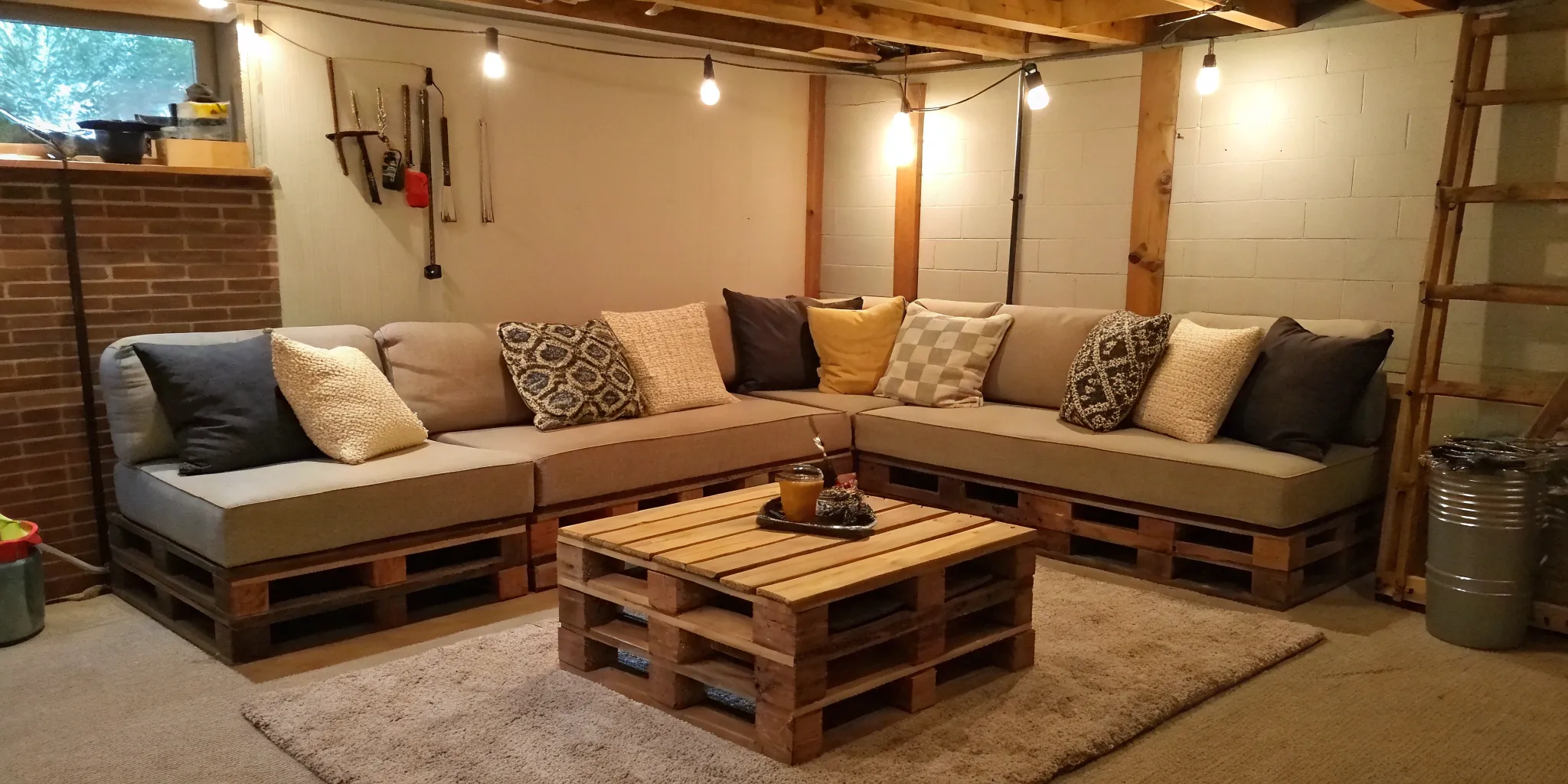


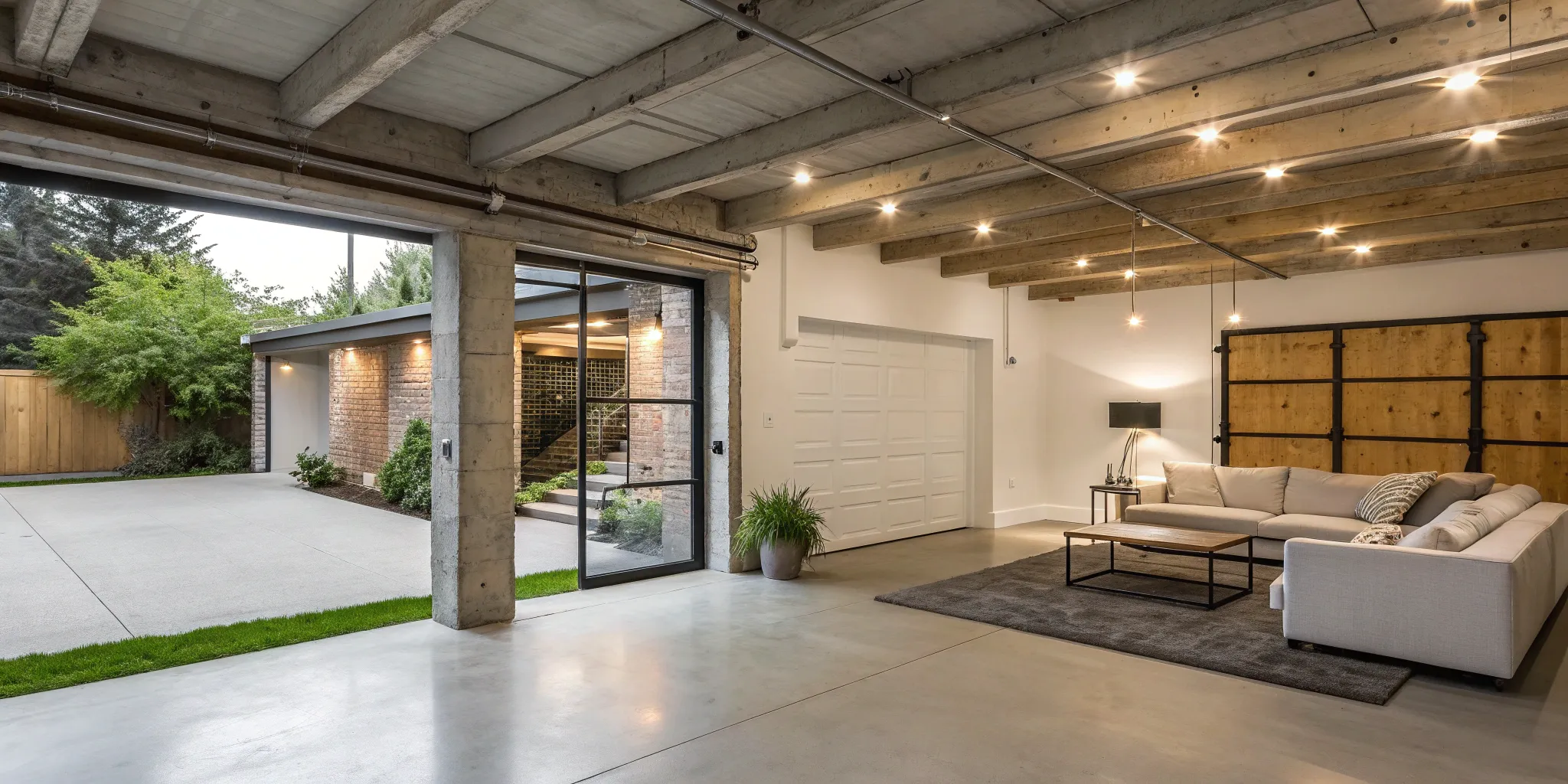

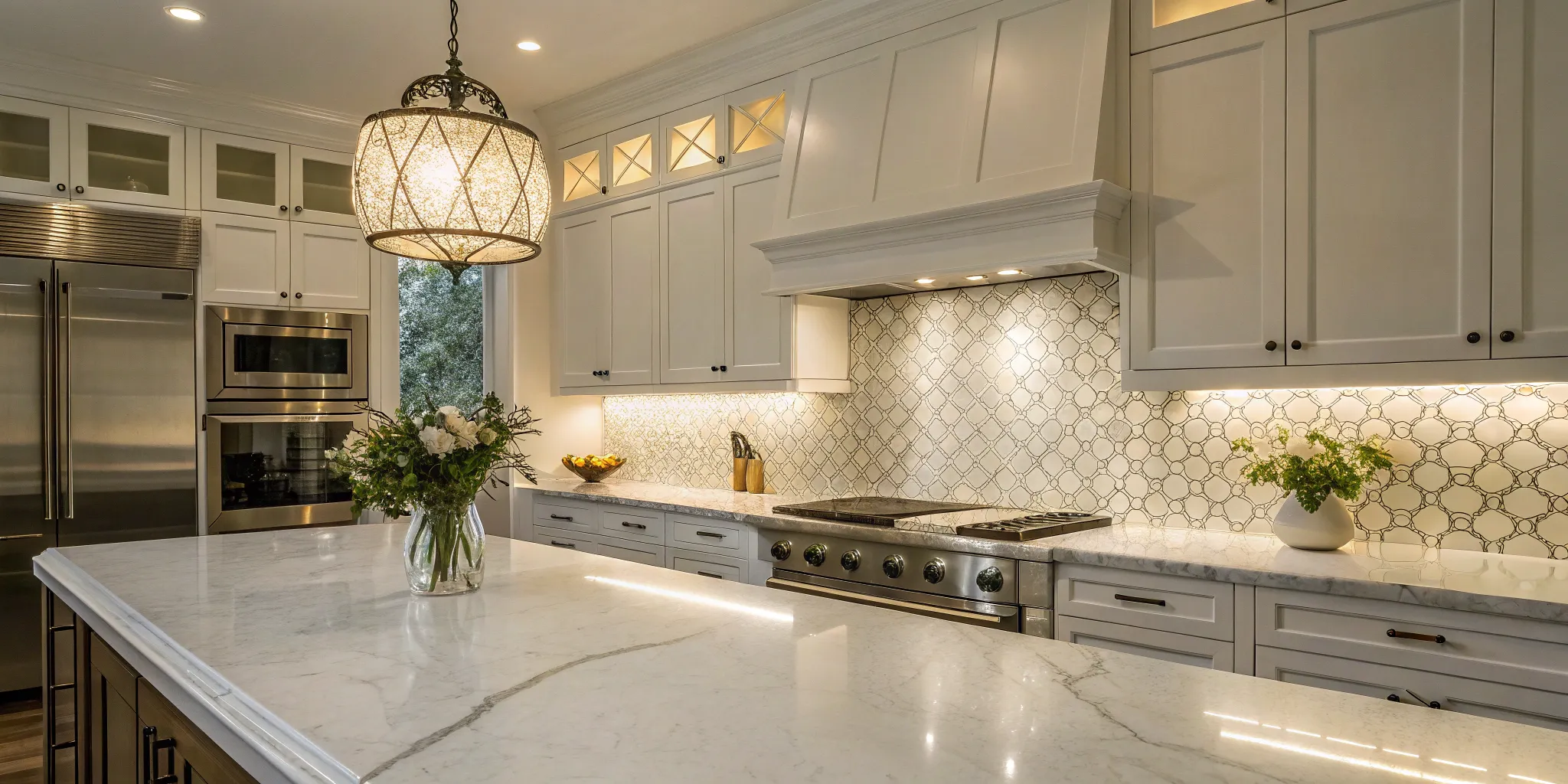
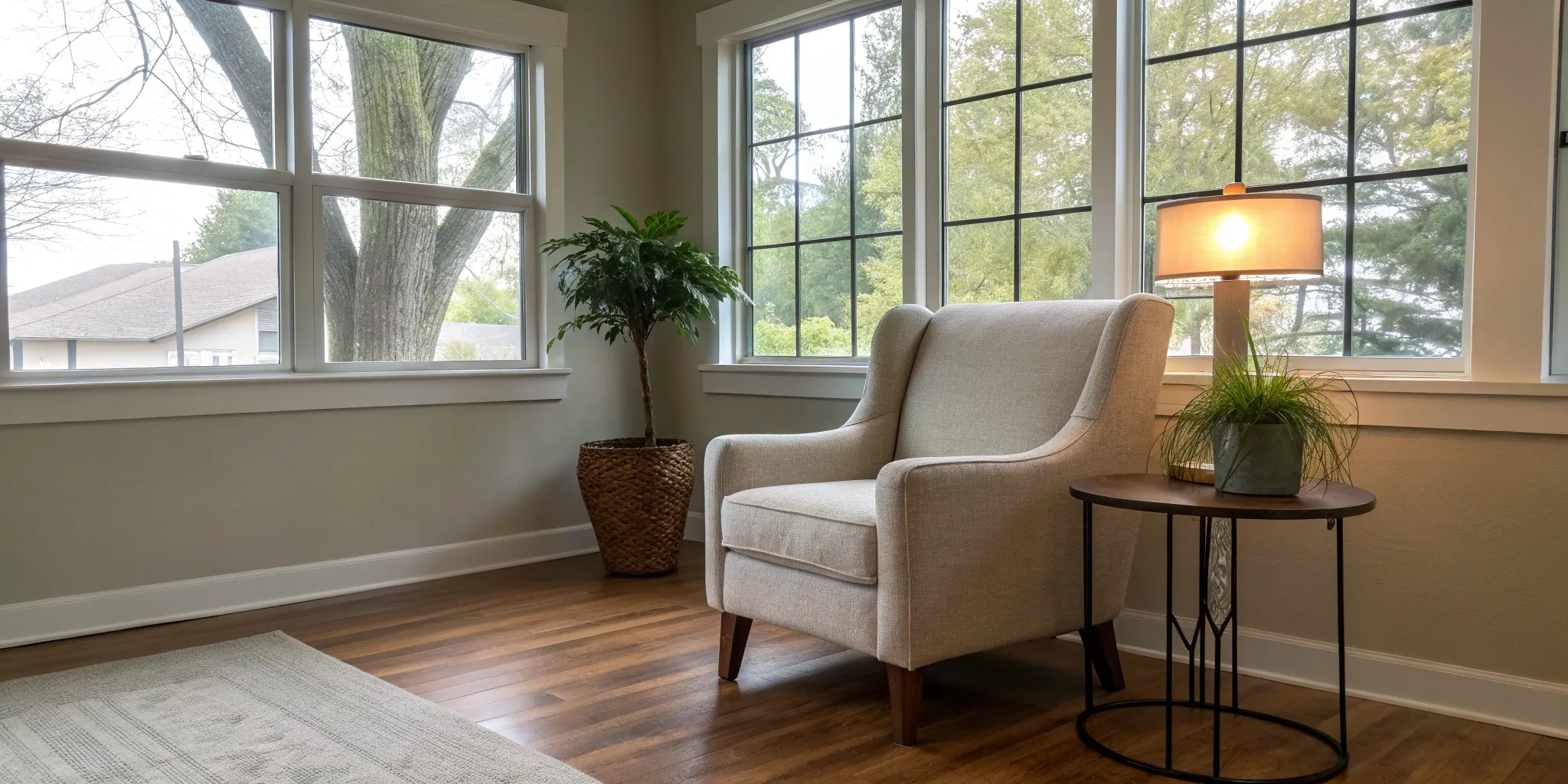
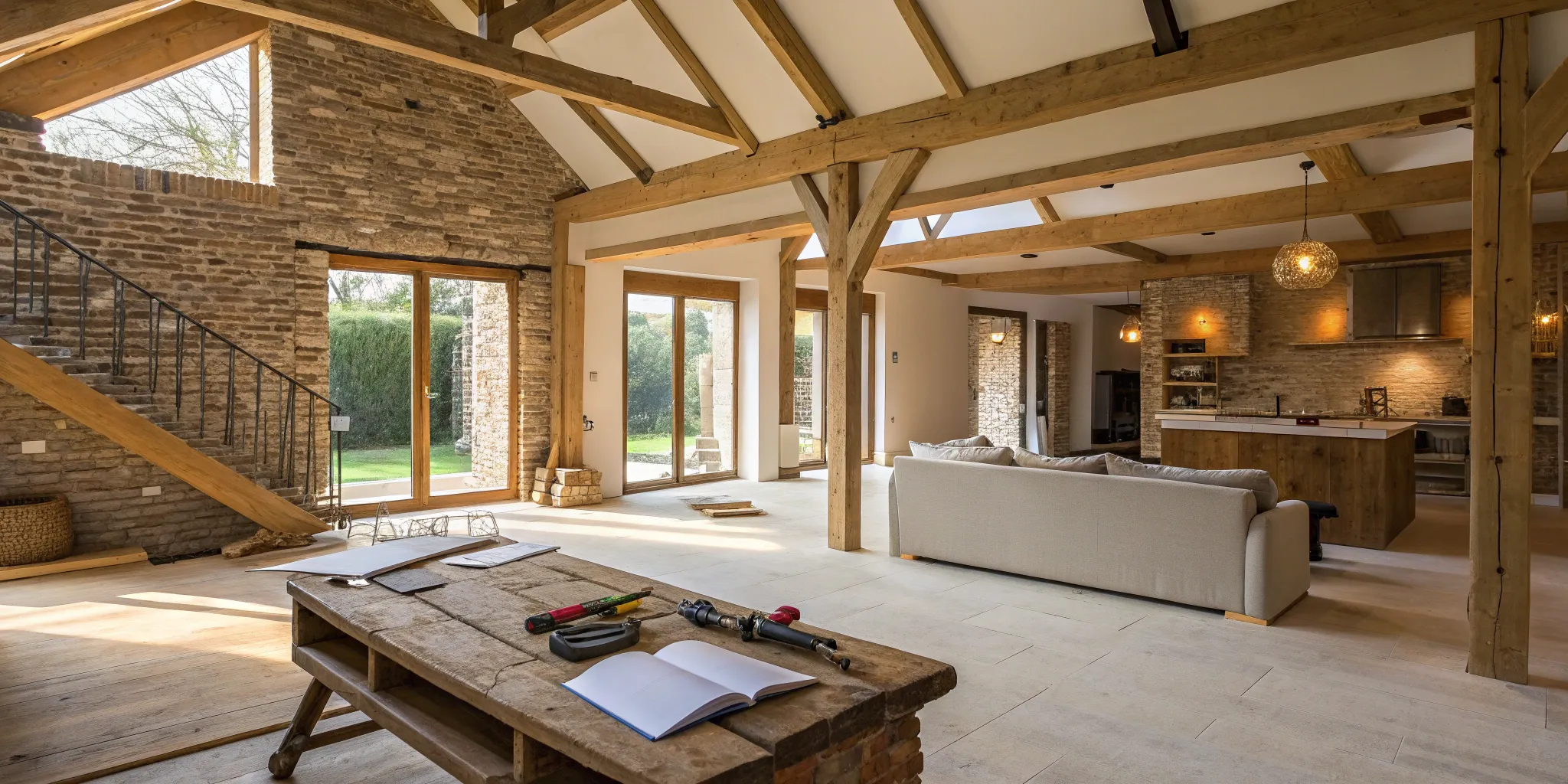

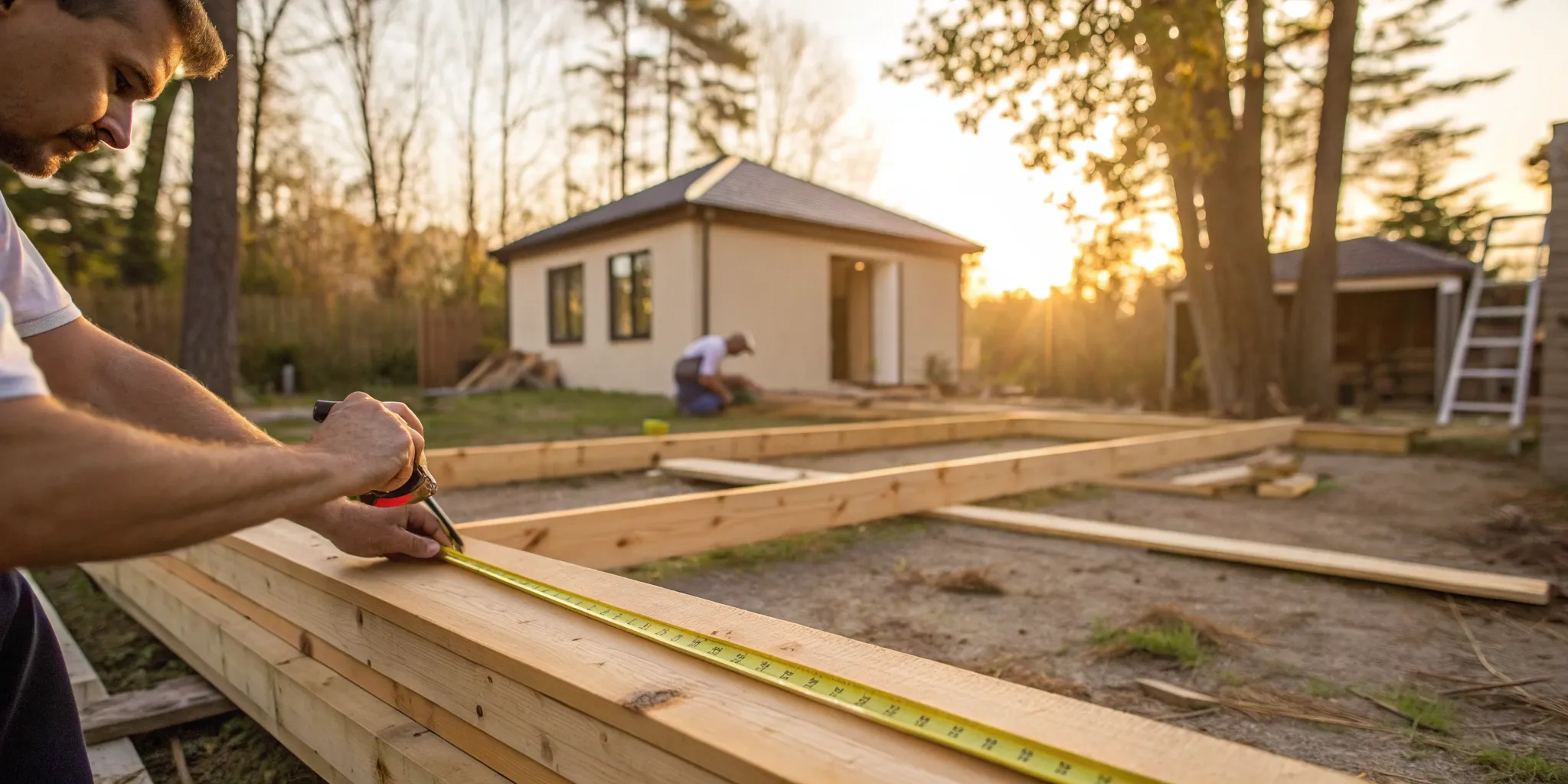
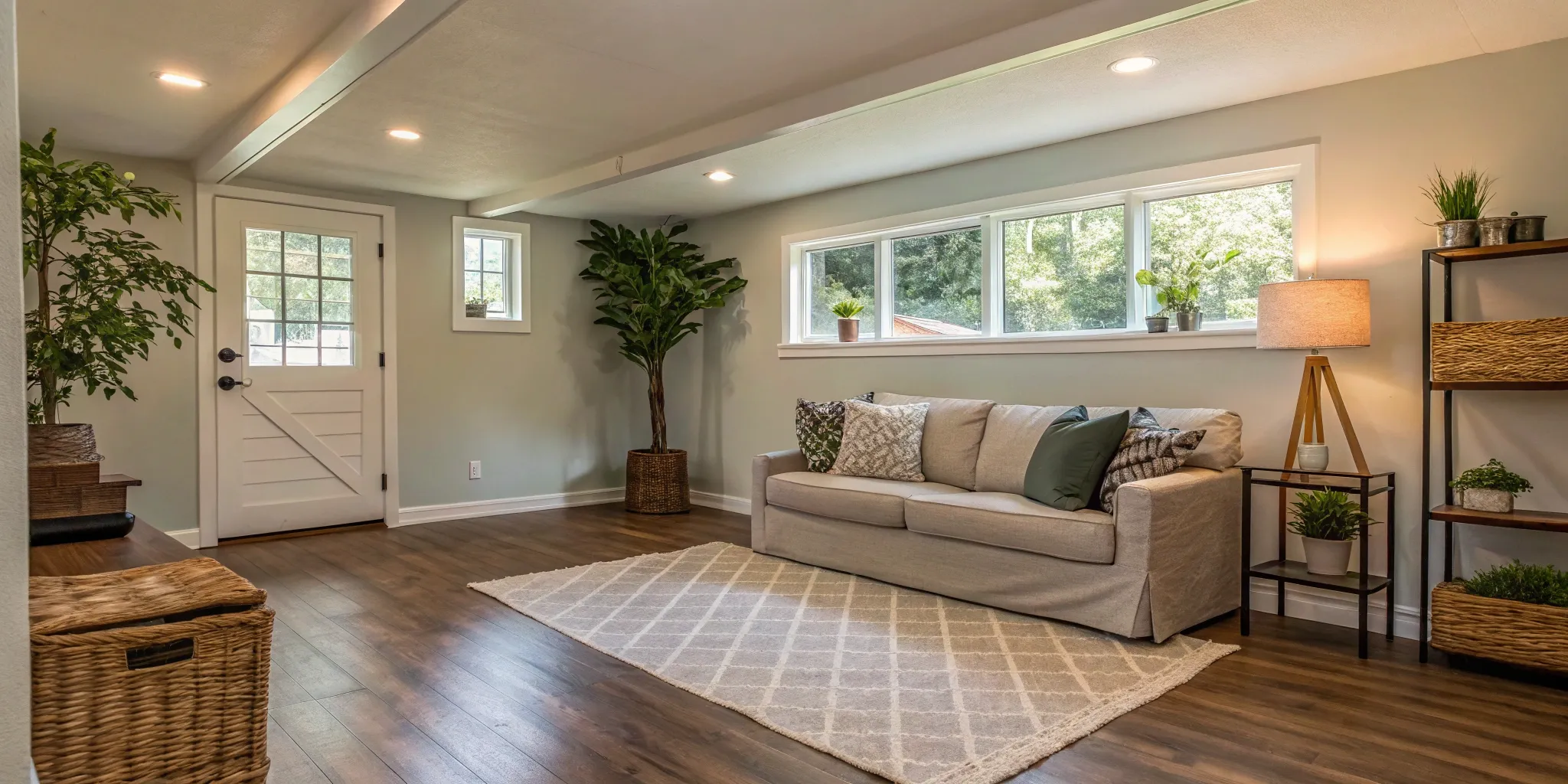

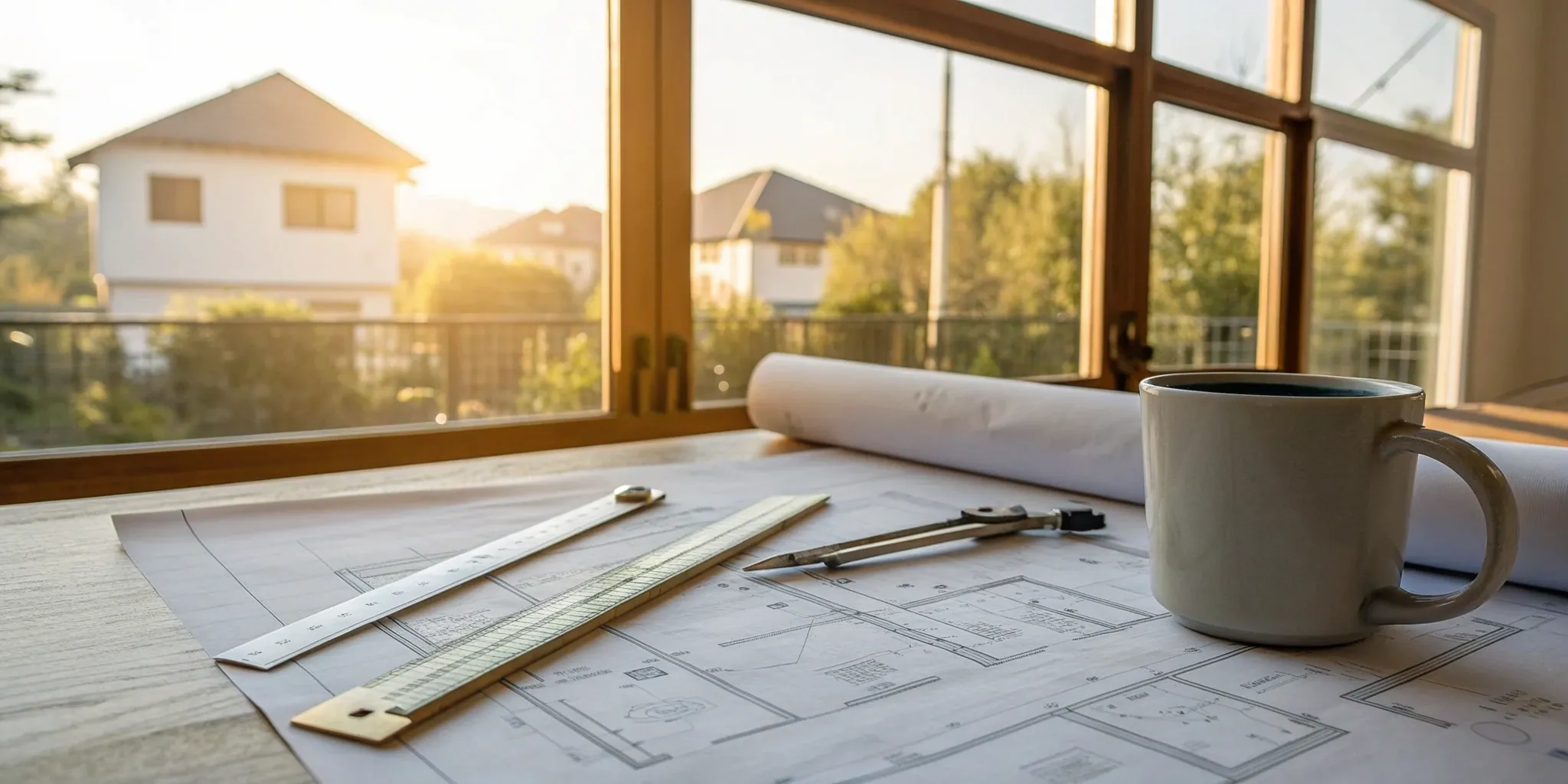


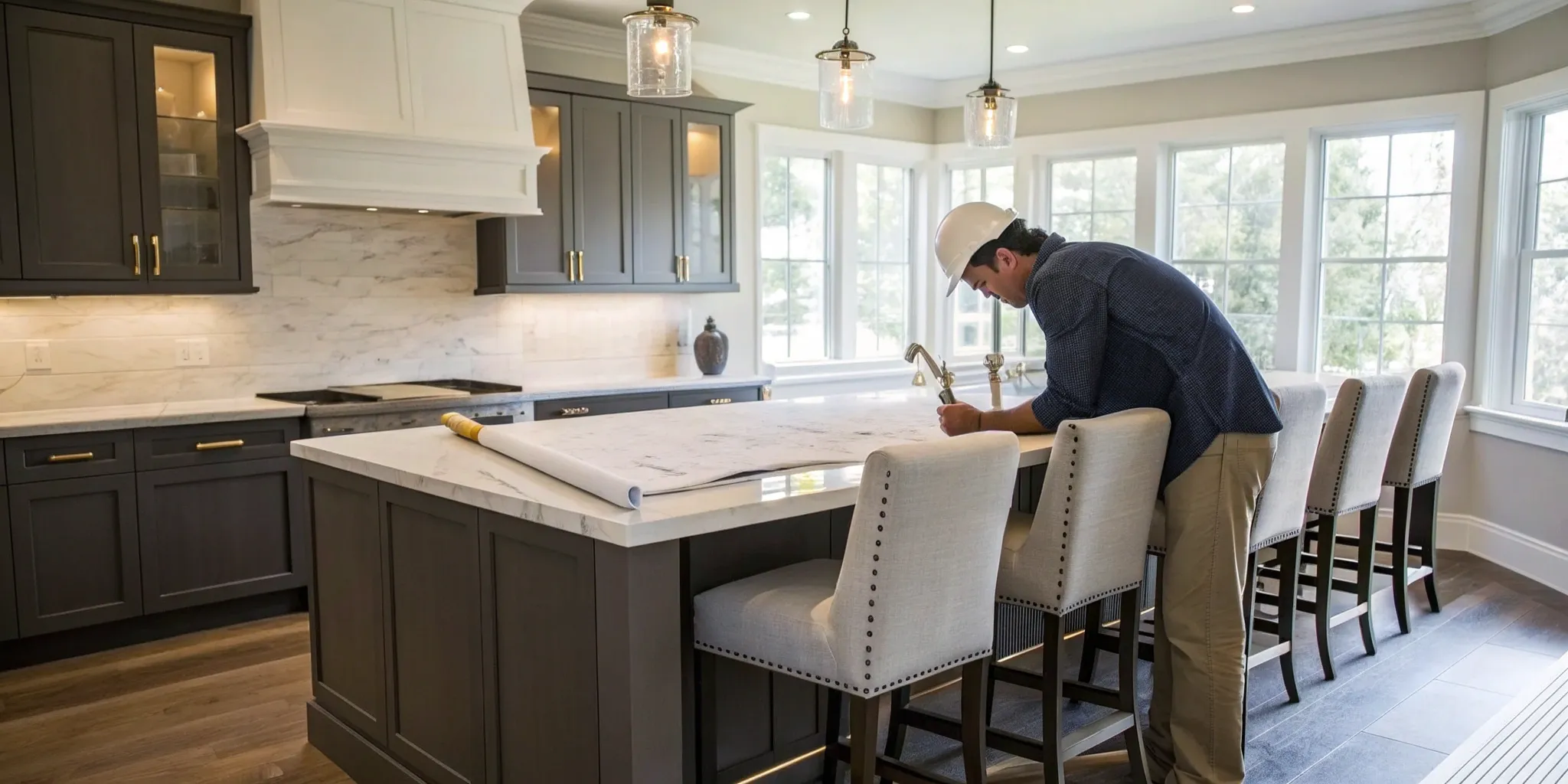
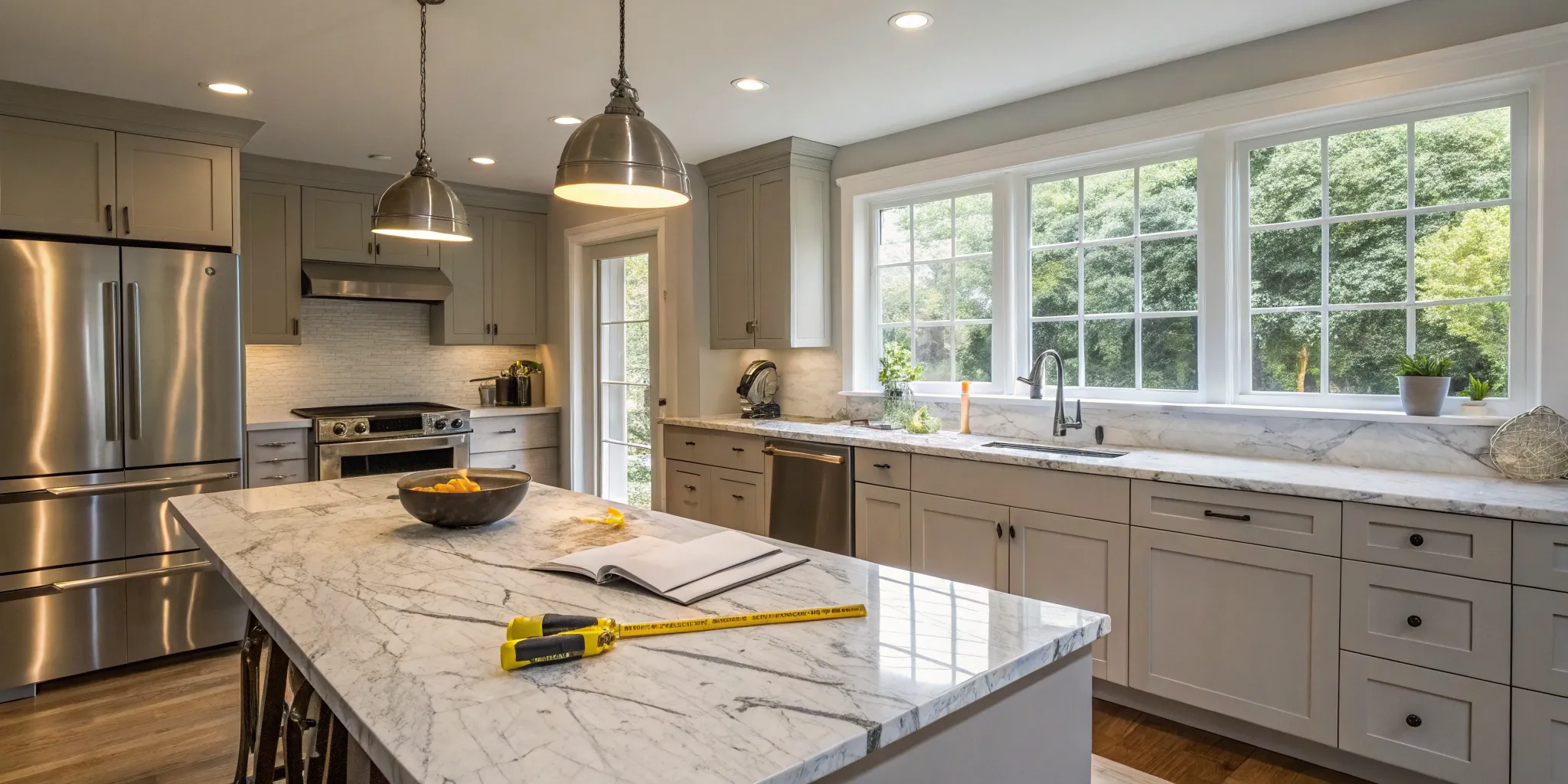
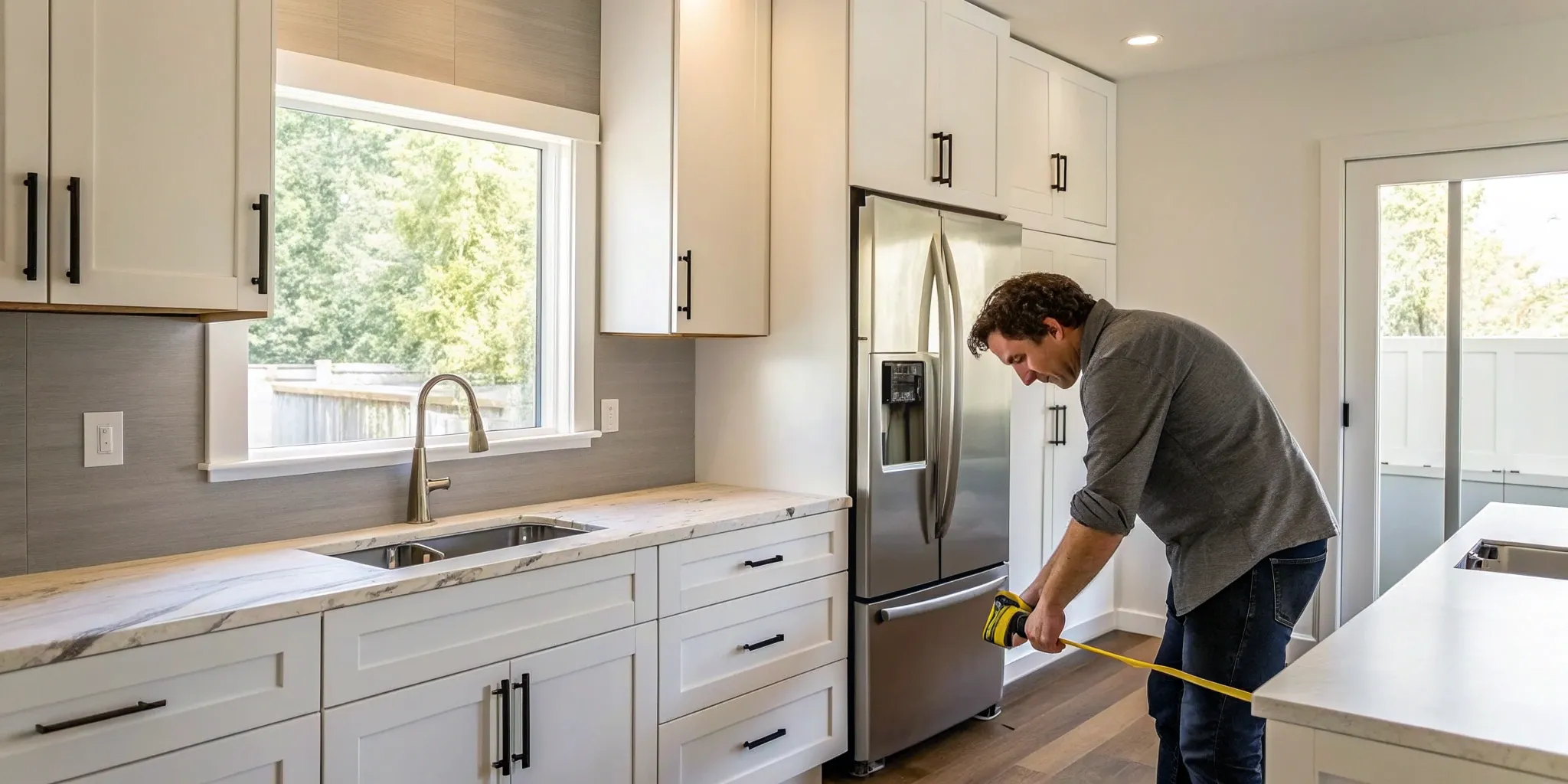
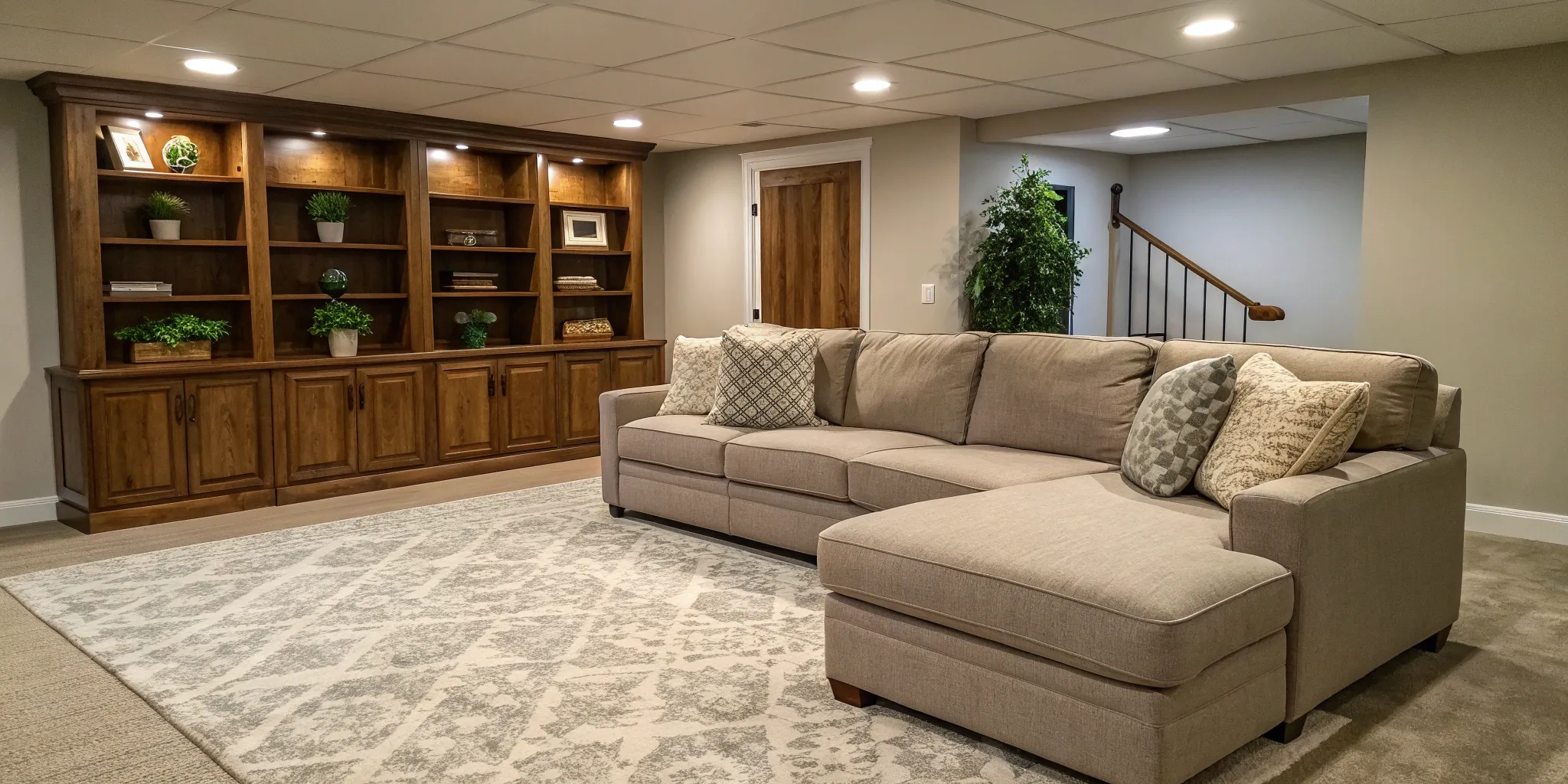
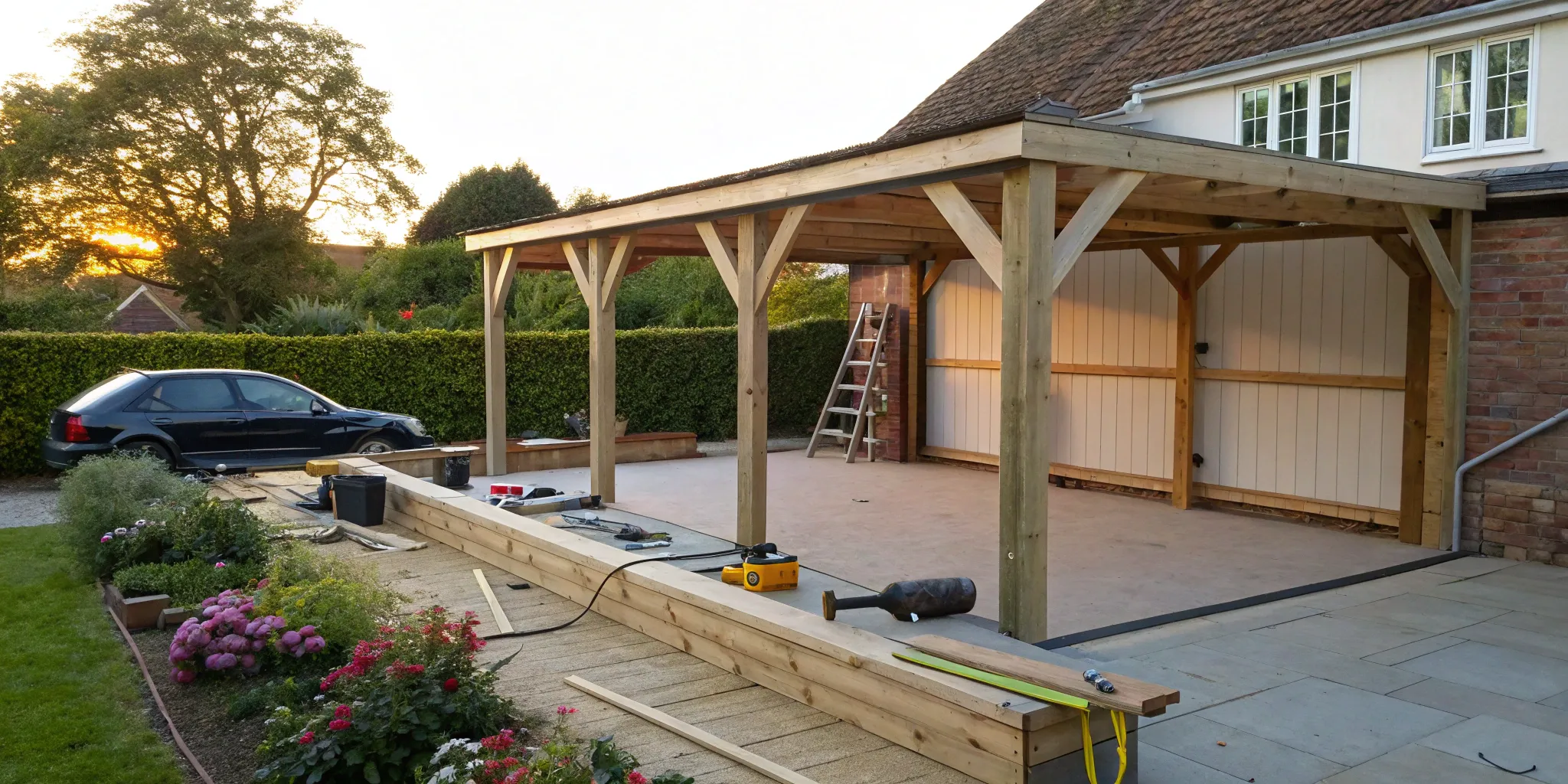

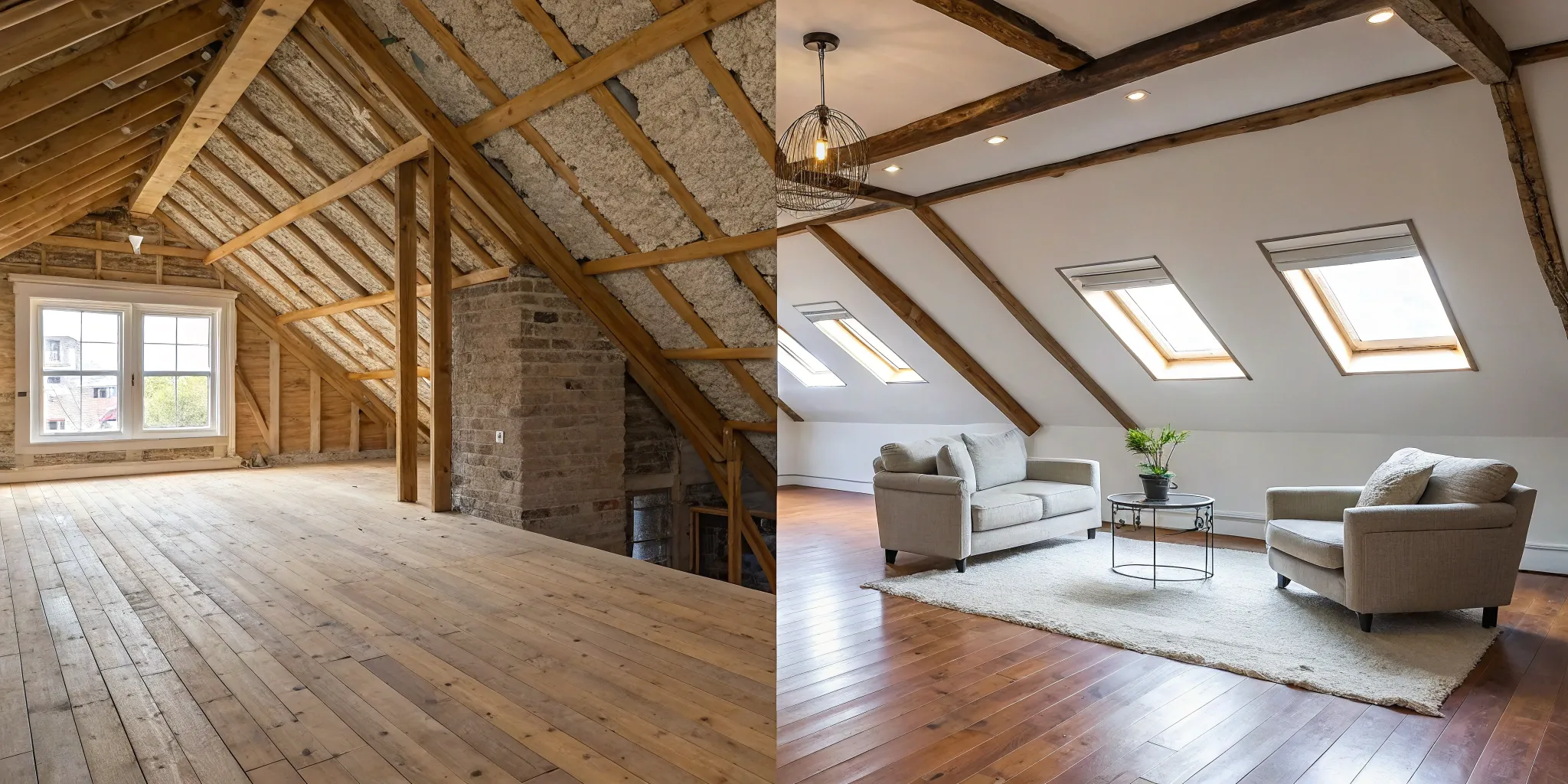

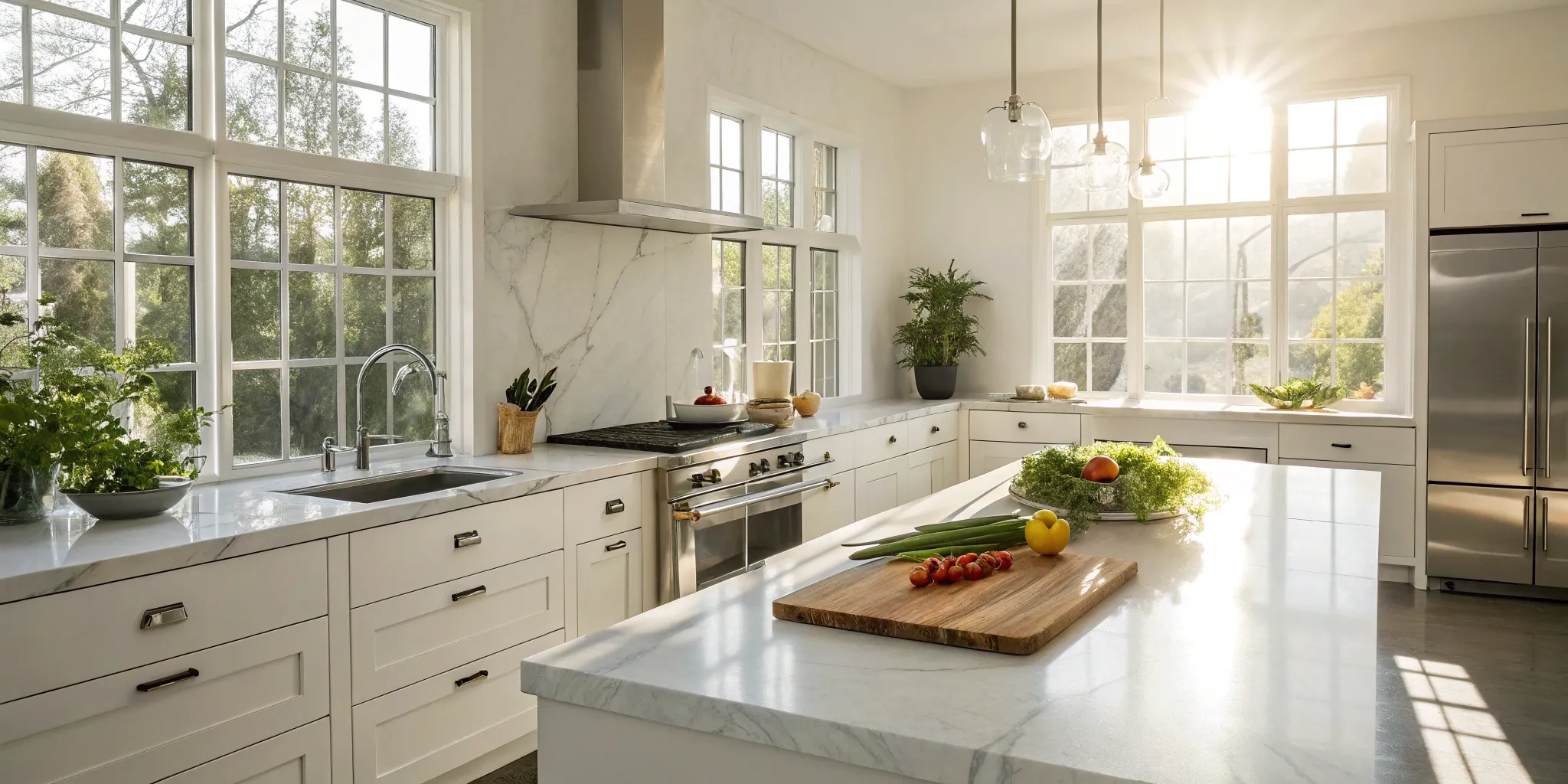





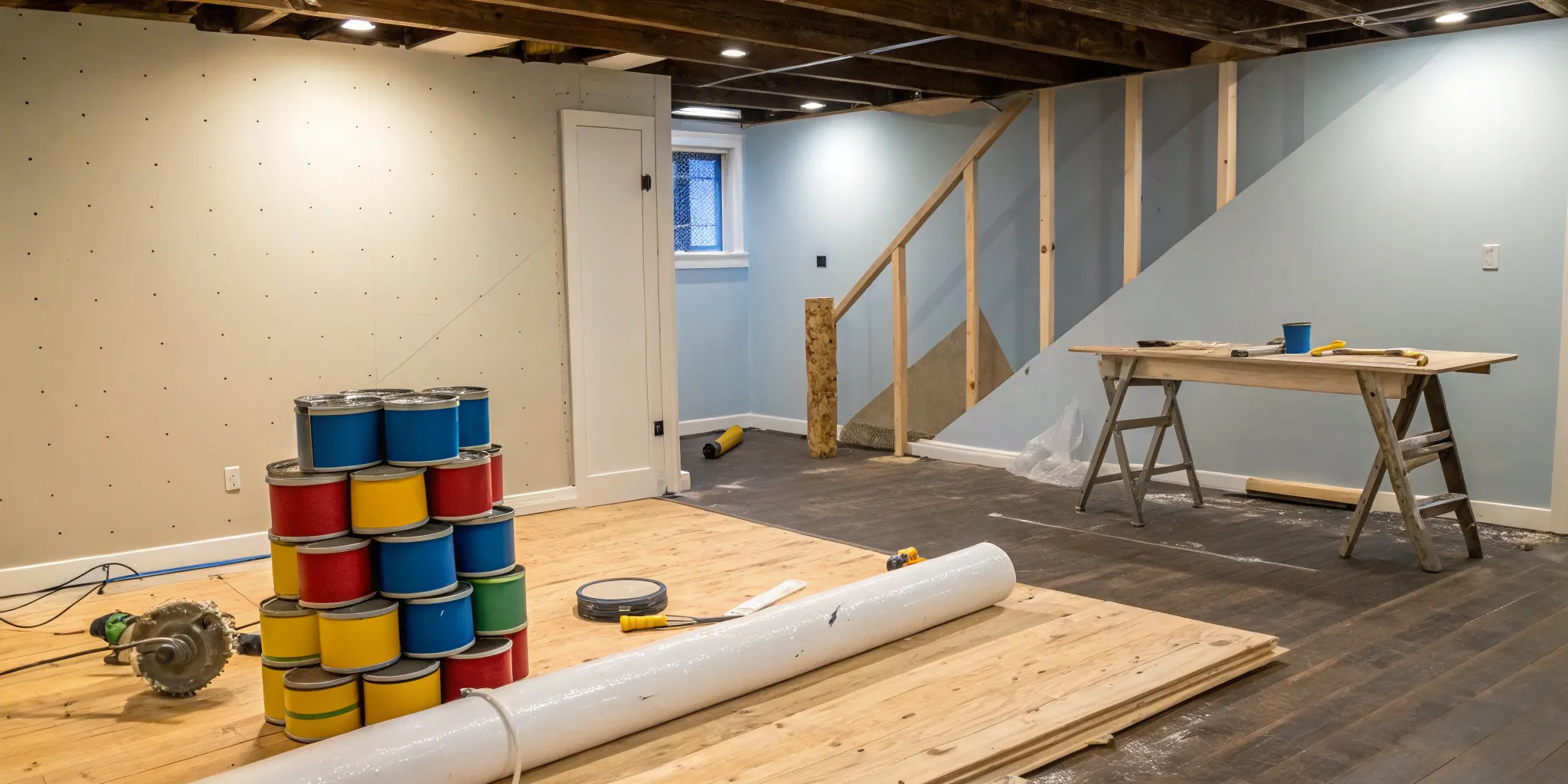

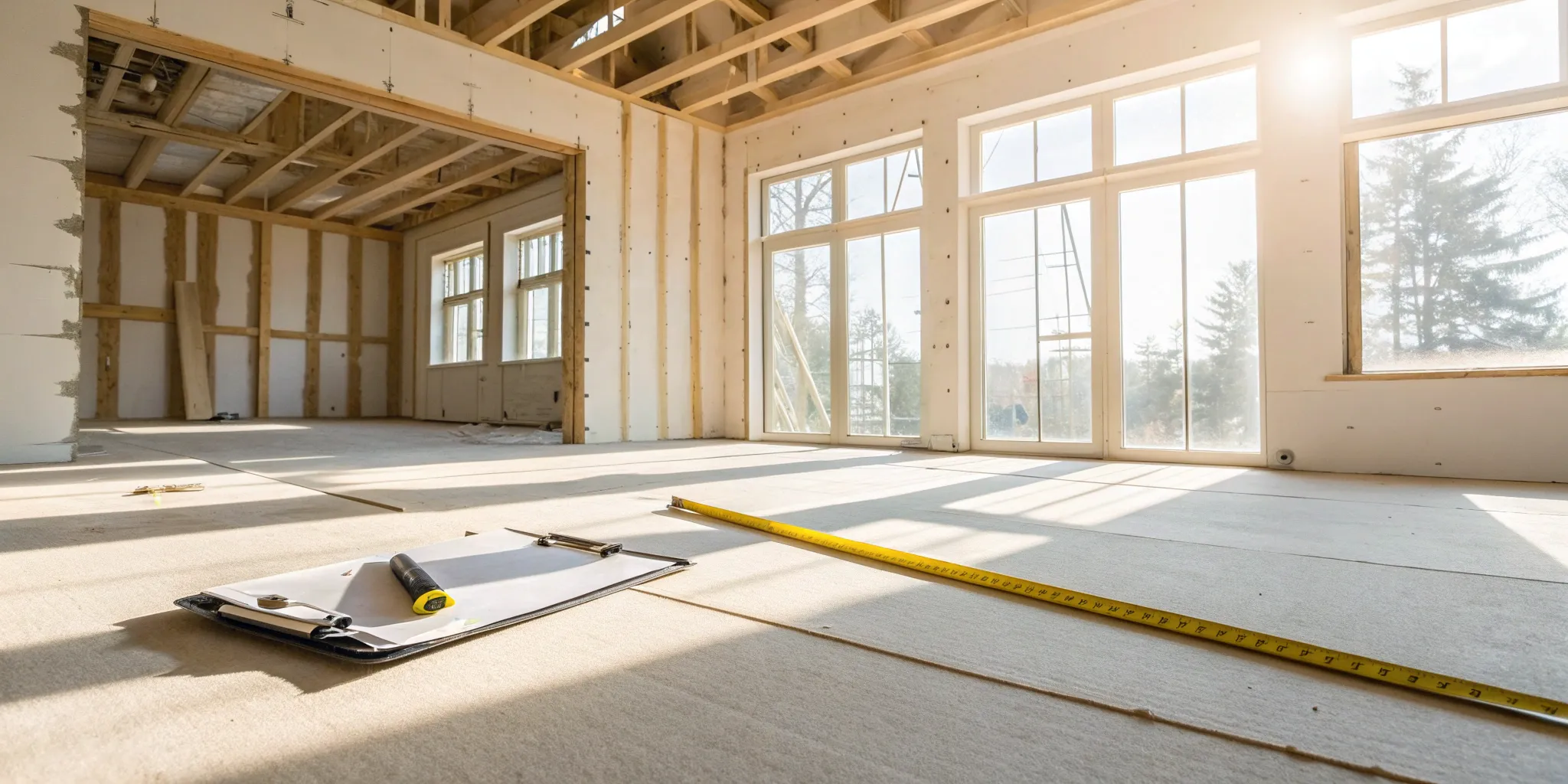
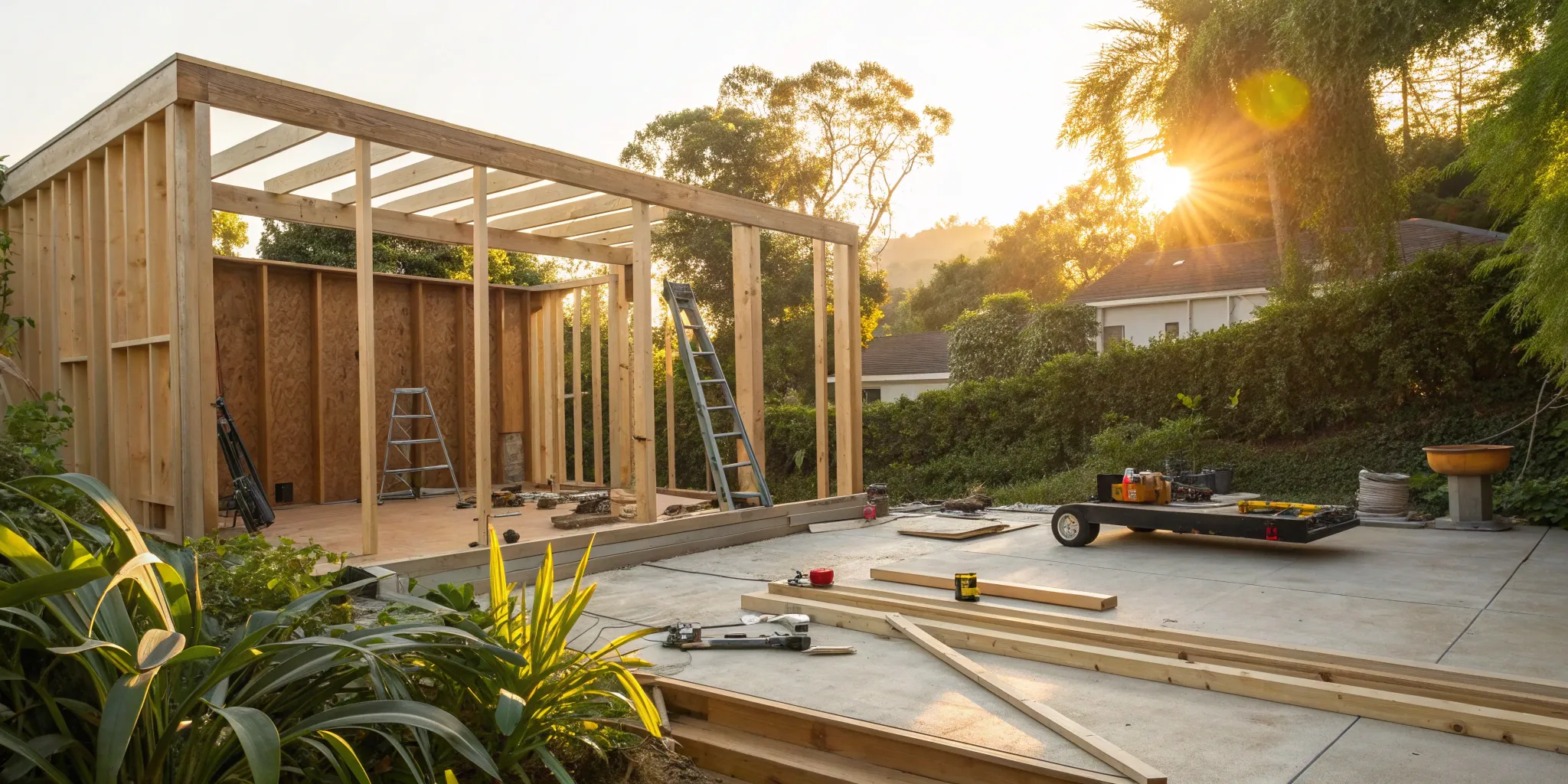
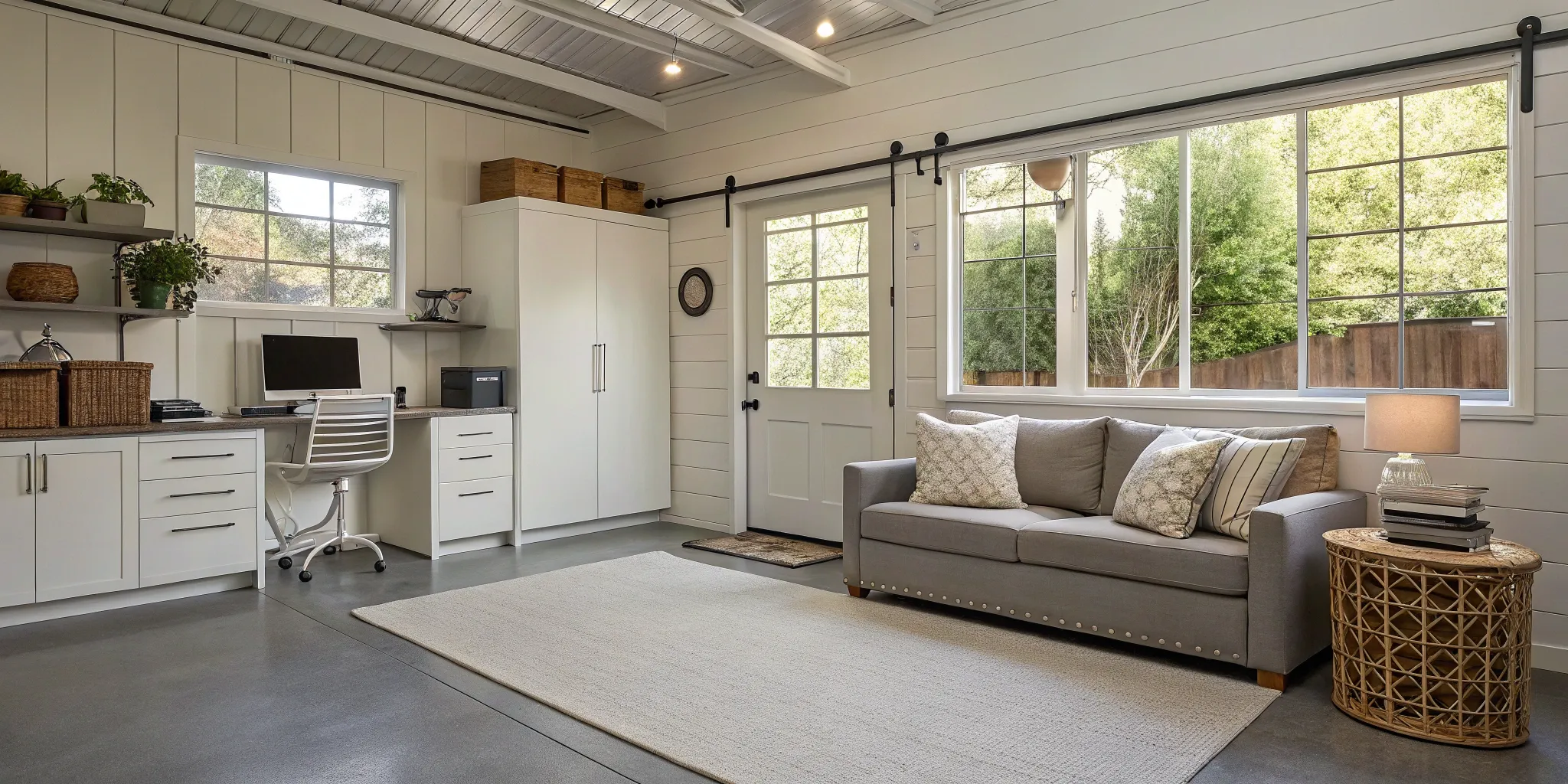

.png)

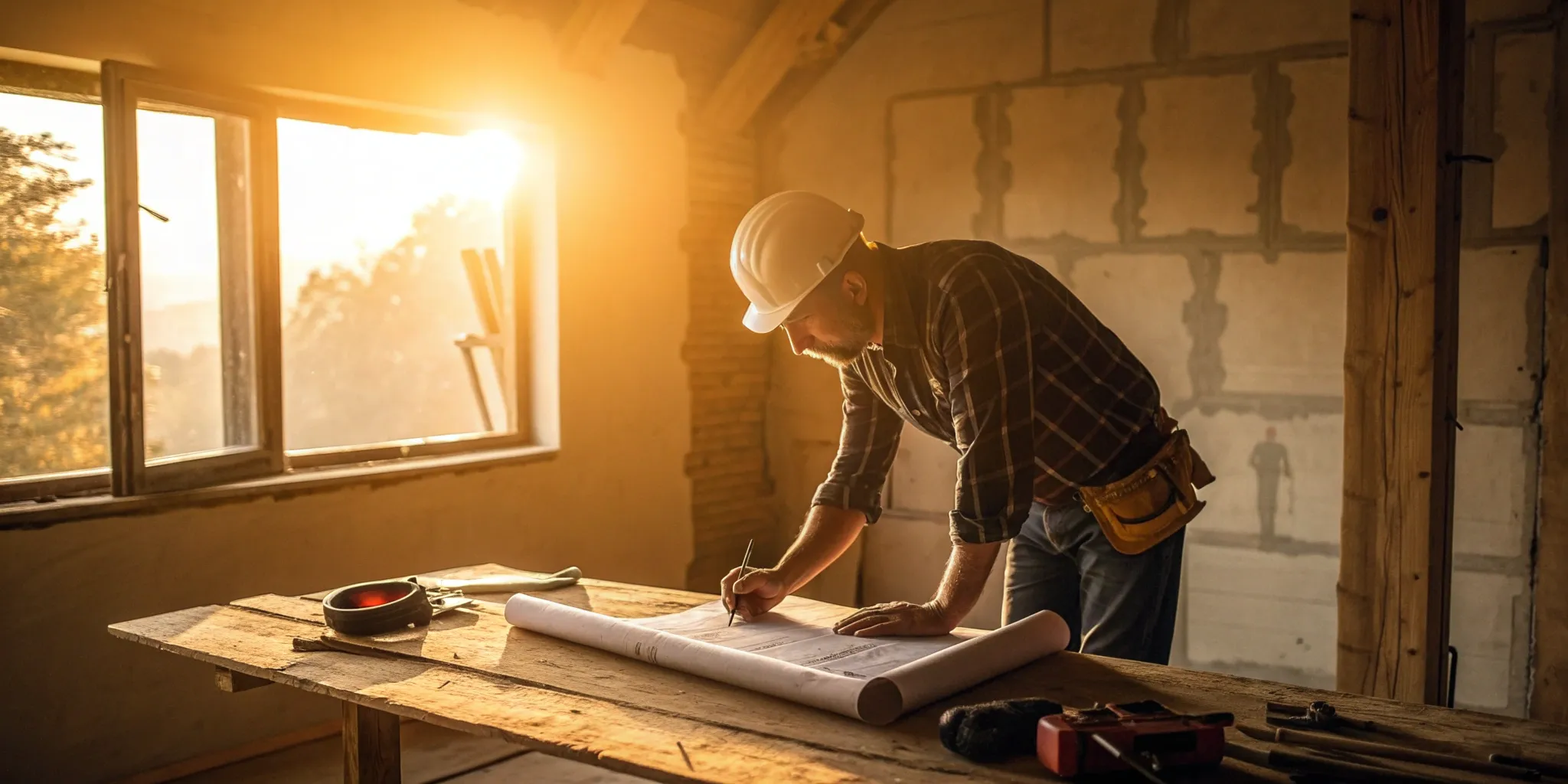

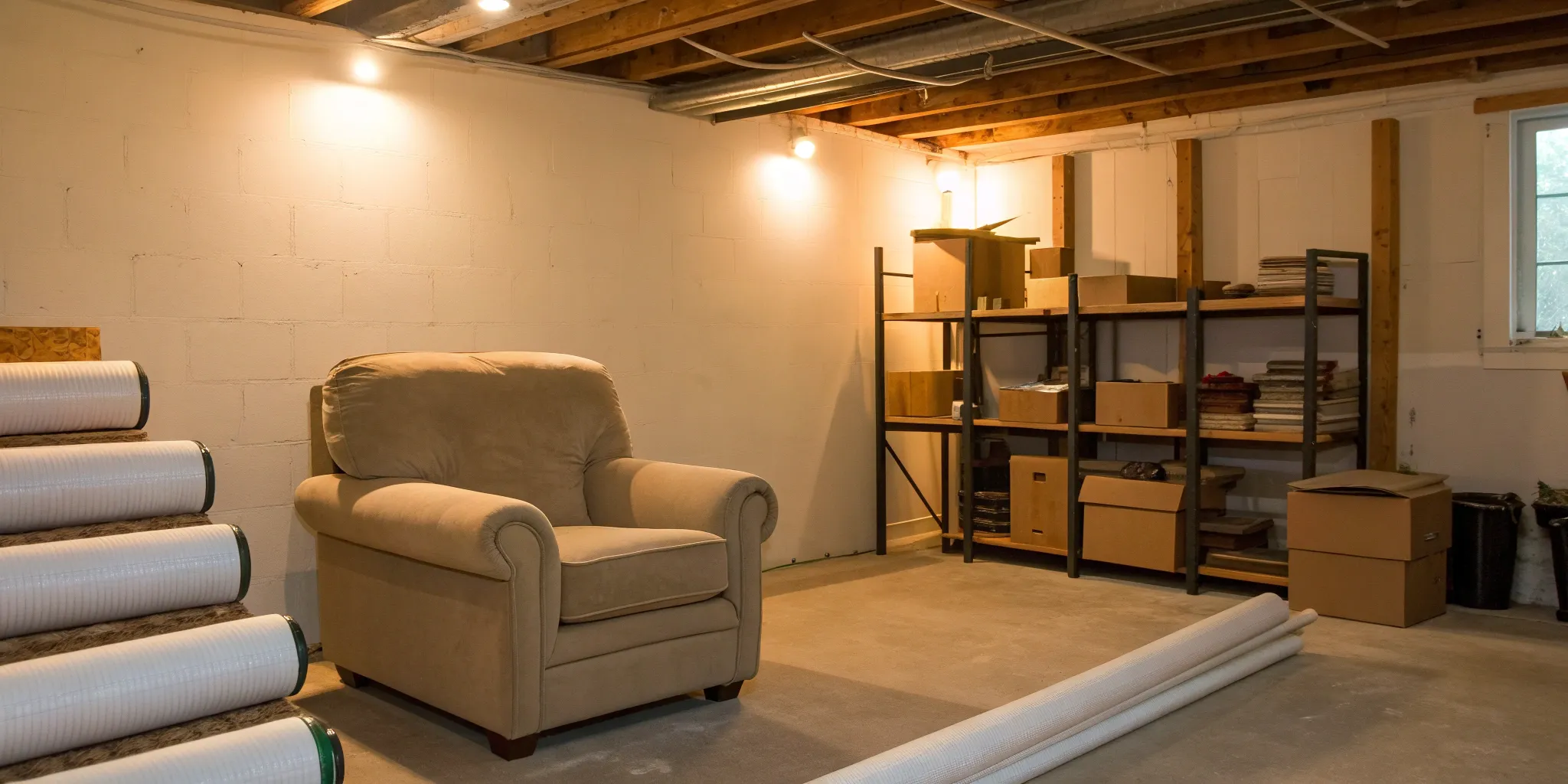

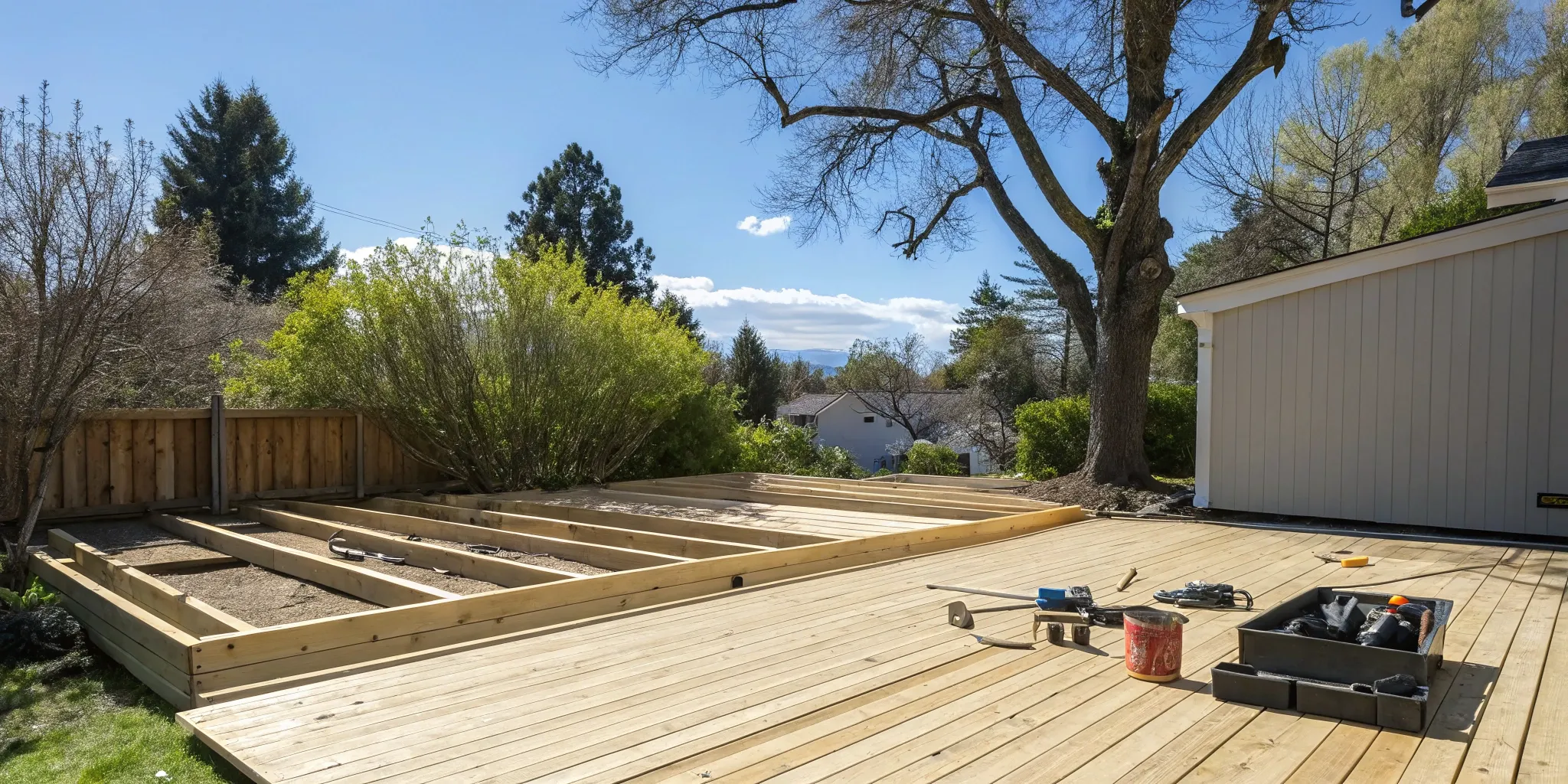





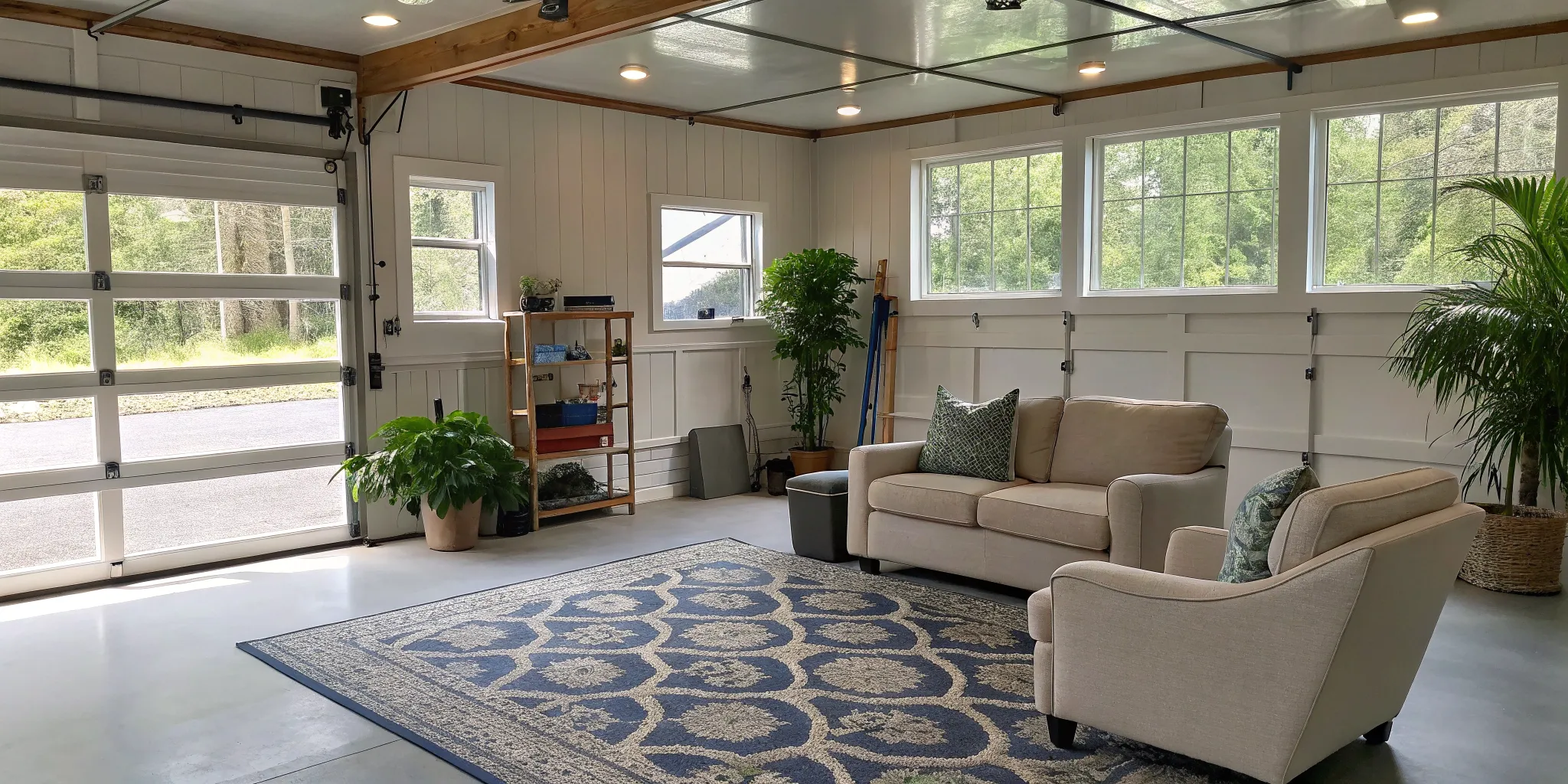
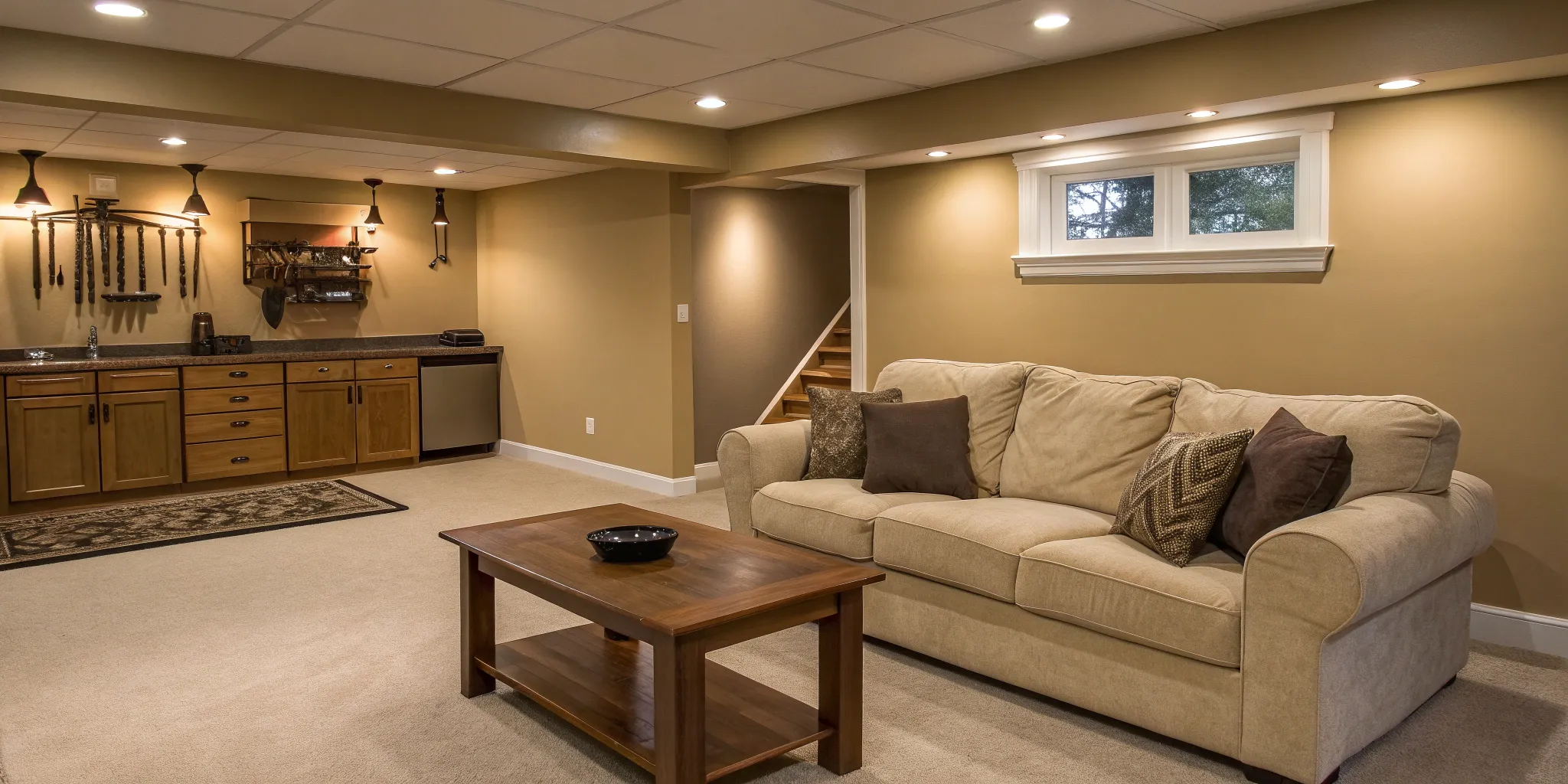



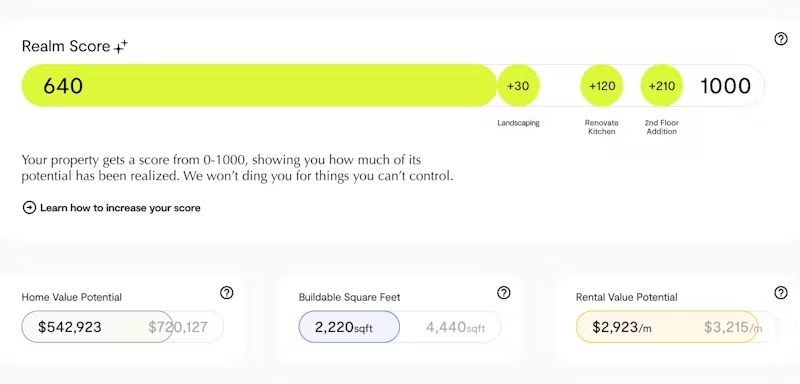

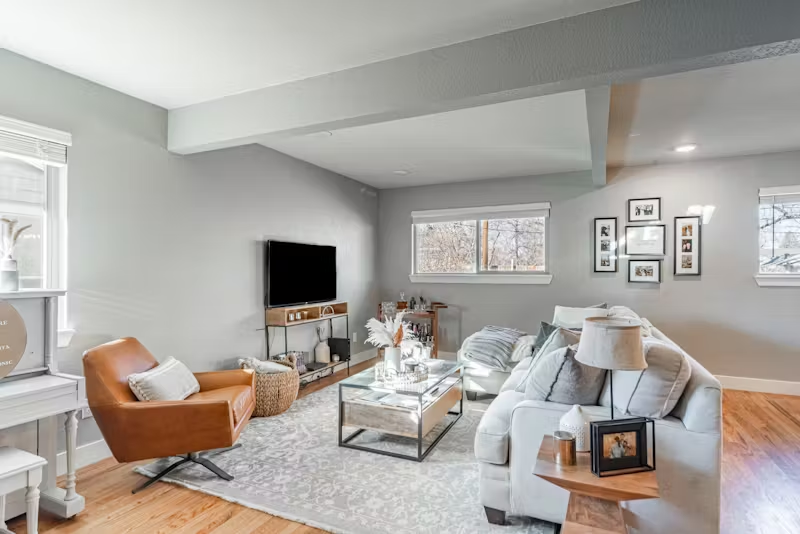
.avif)



